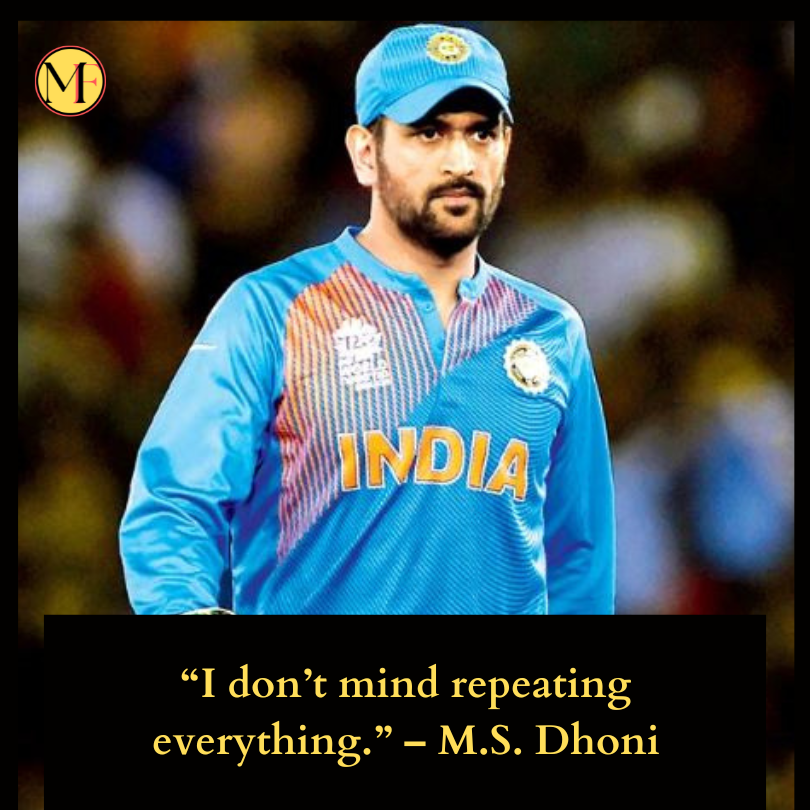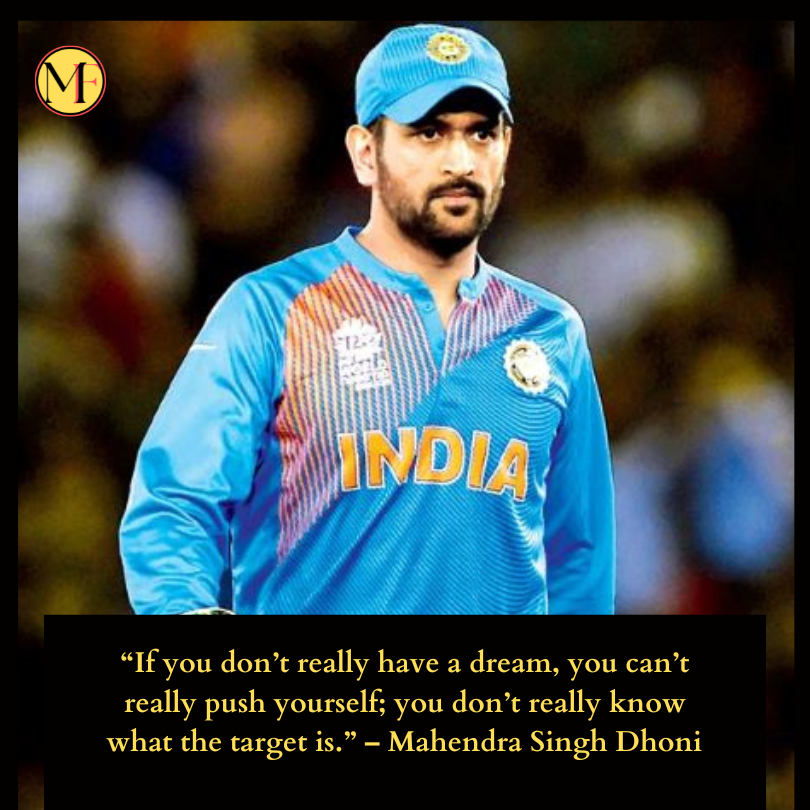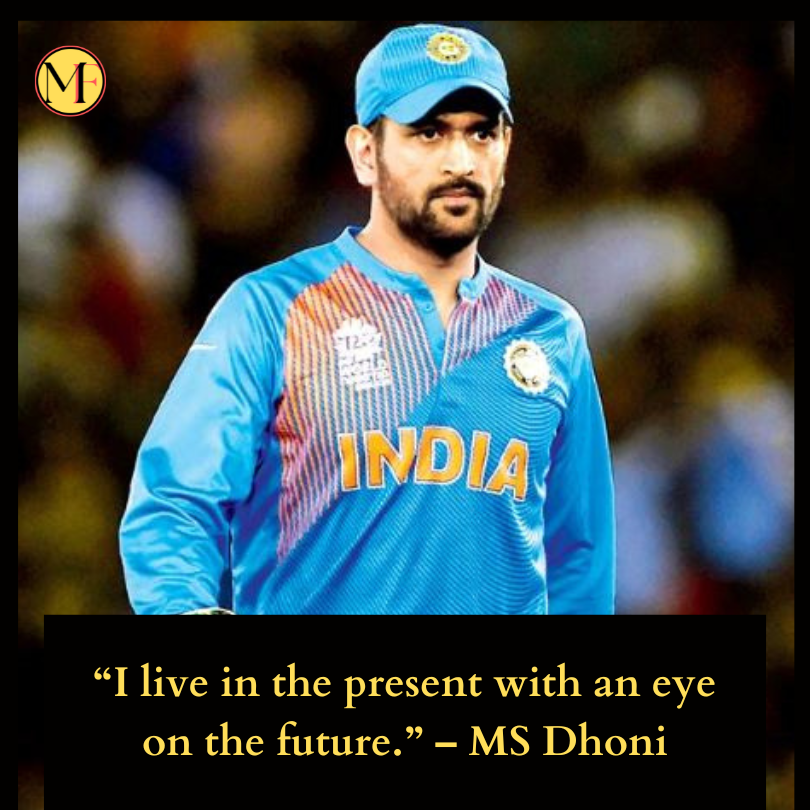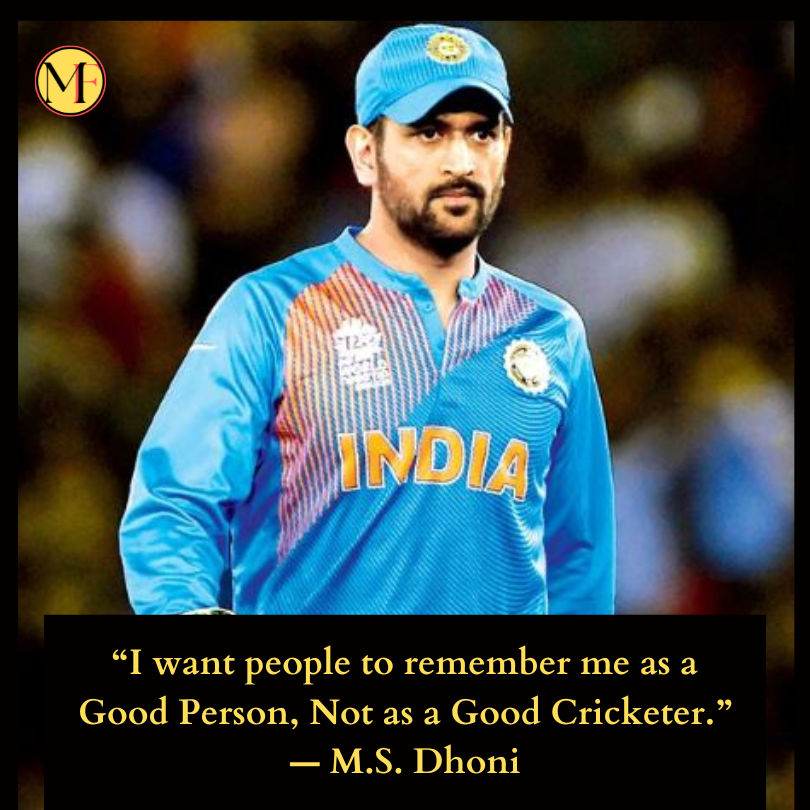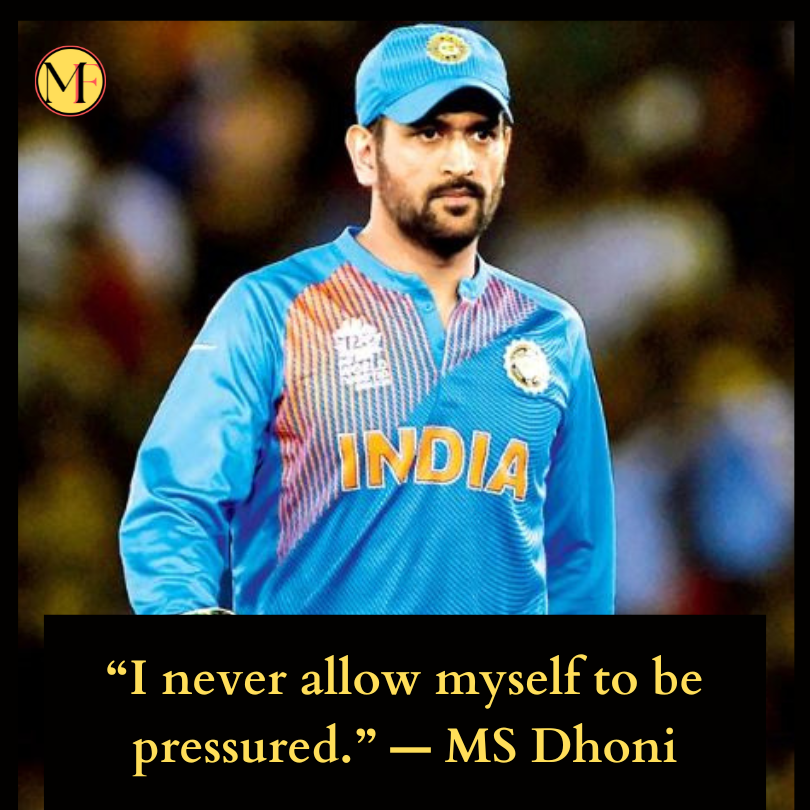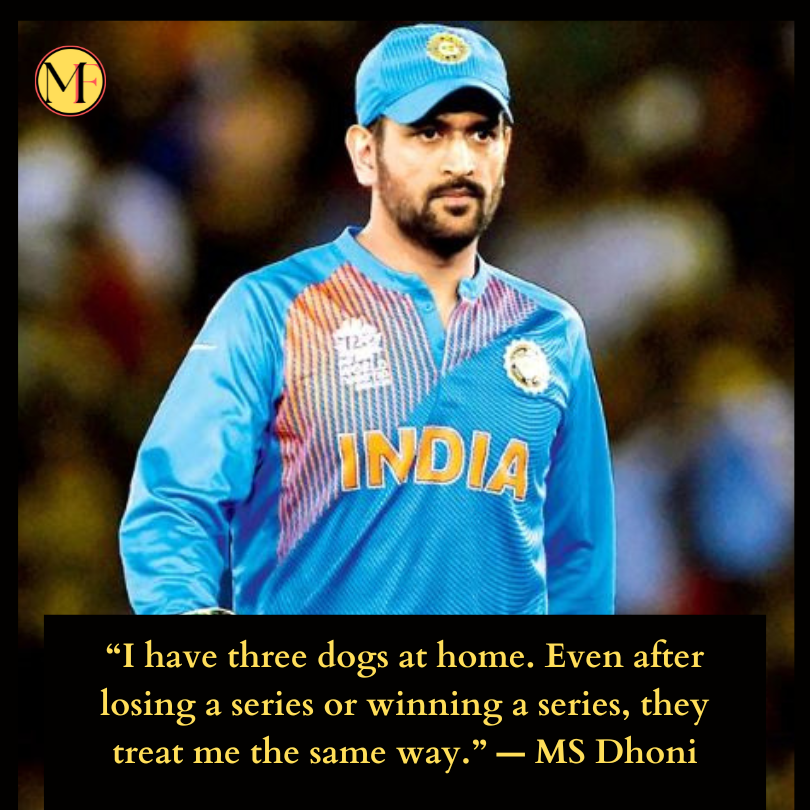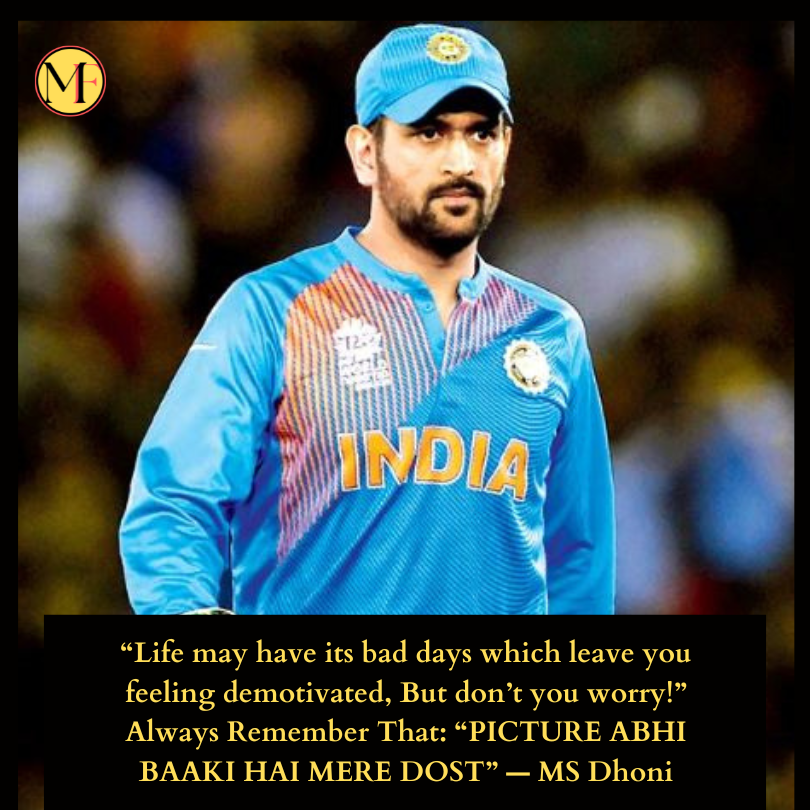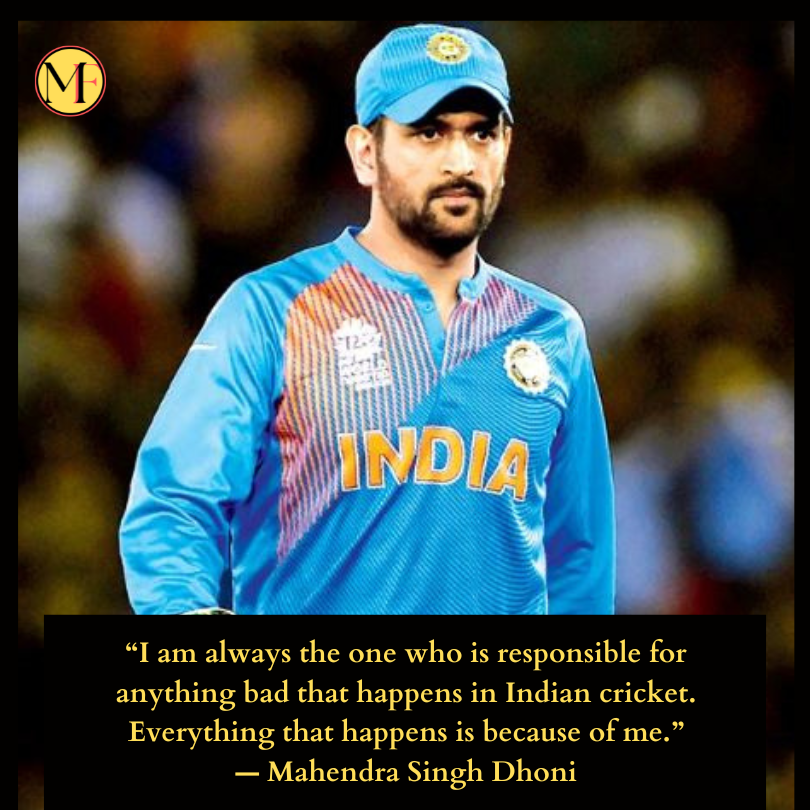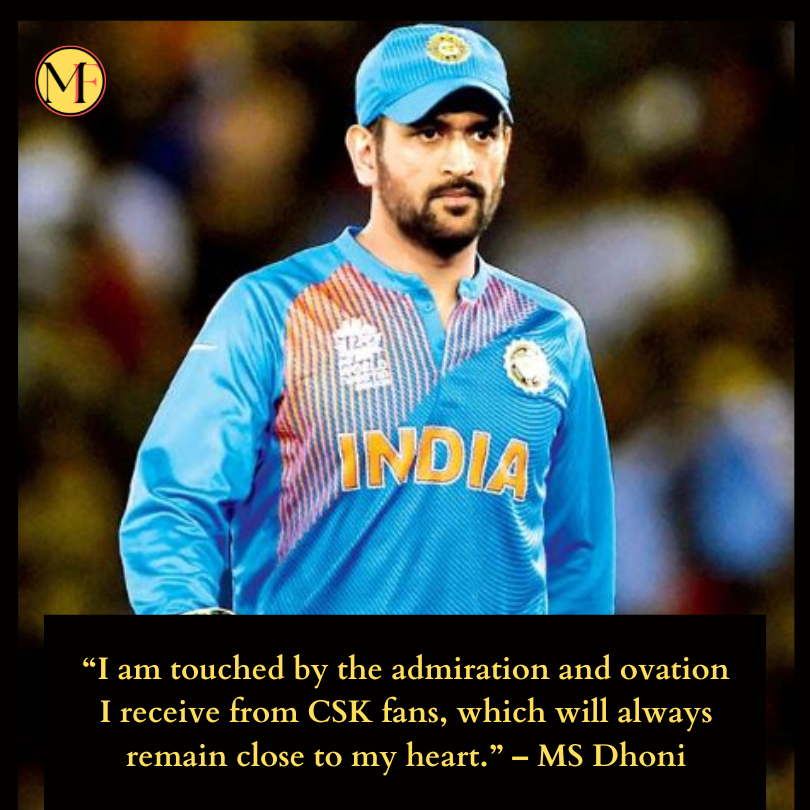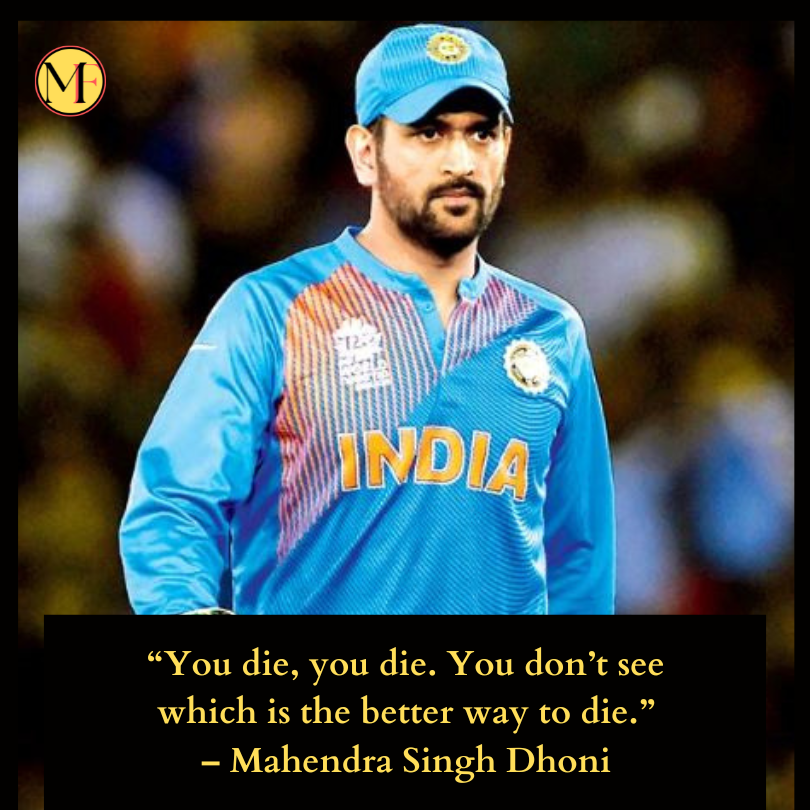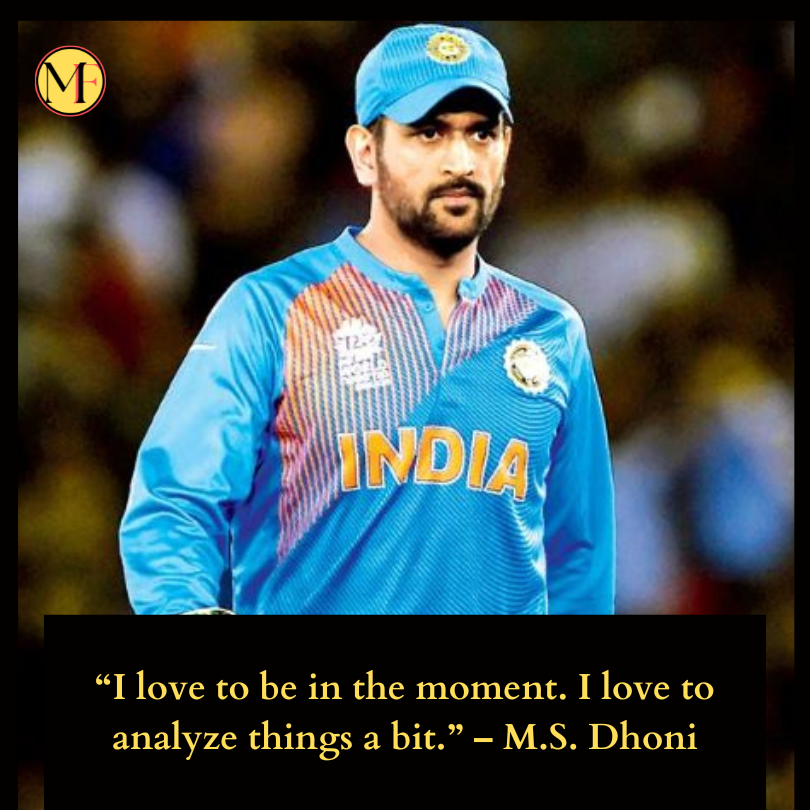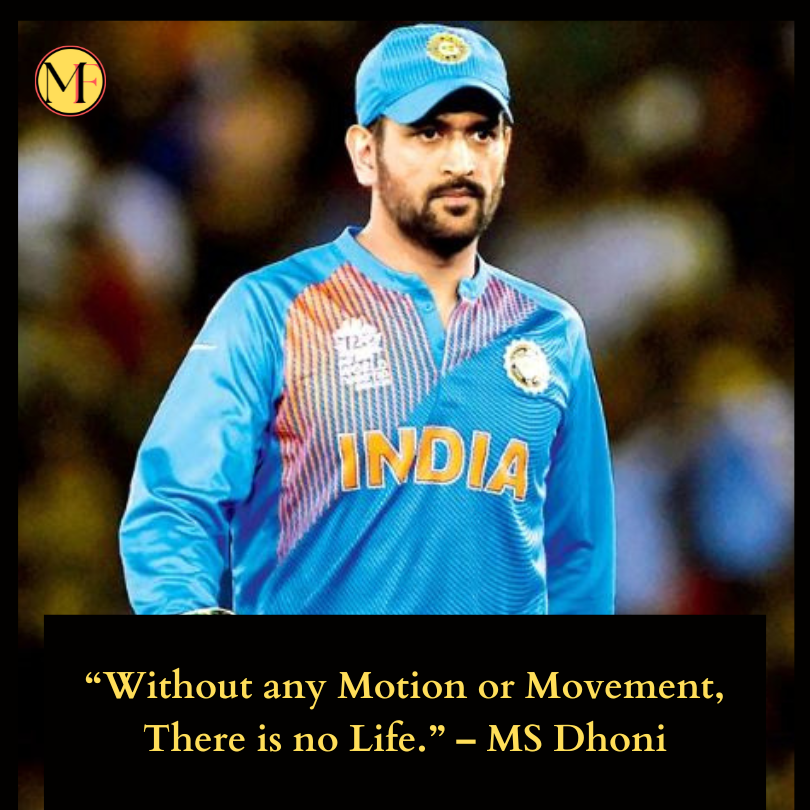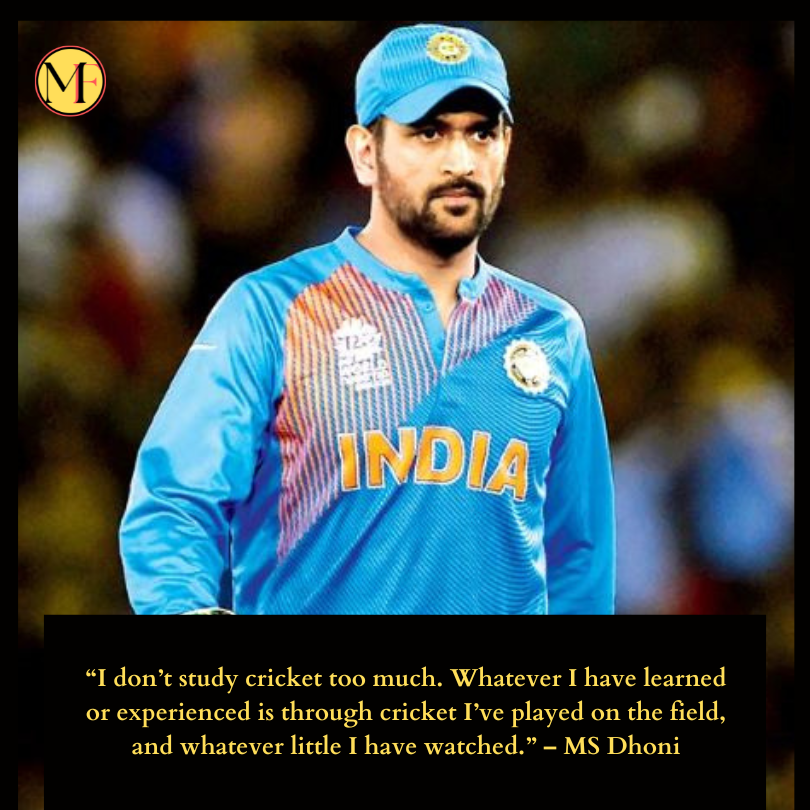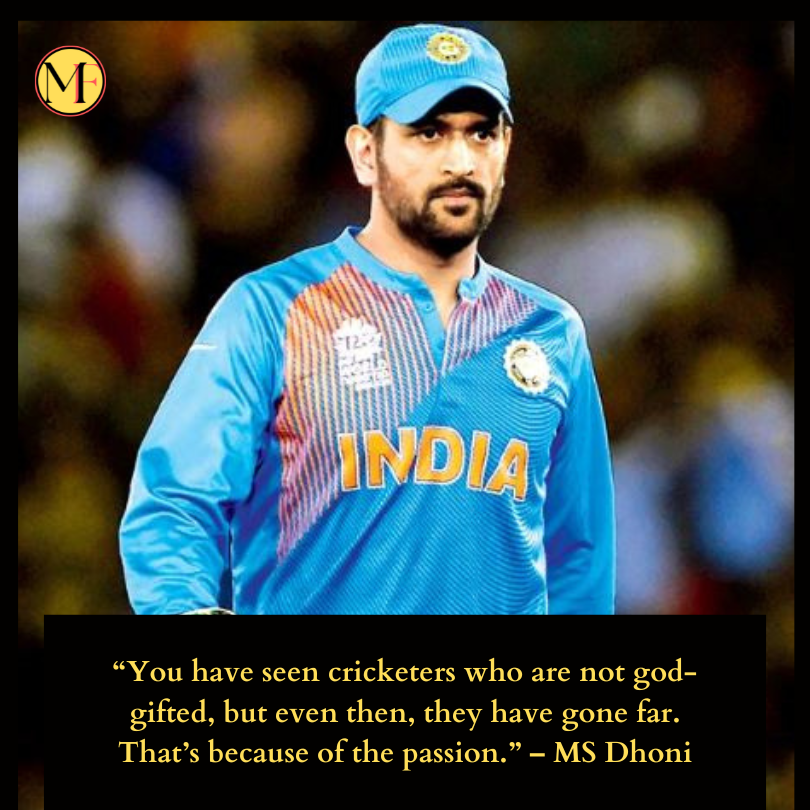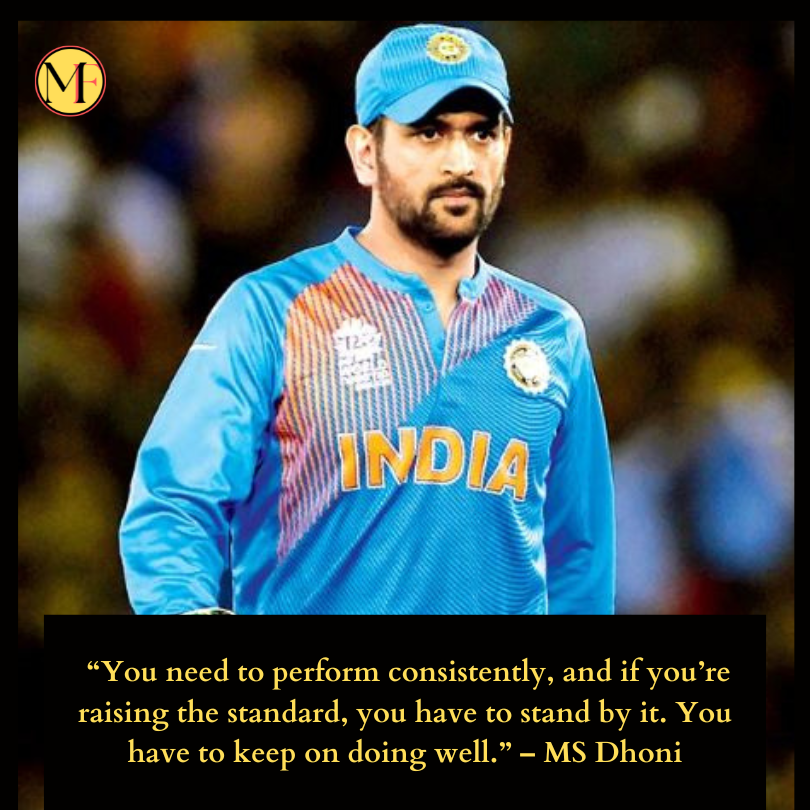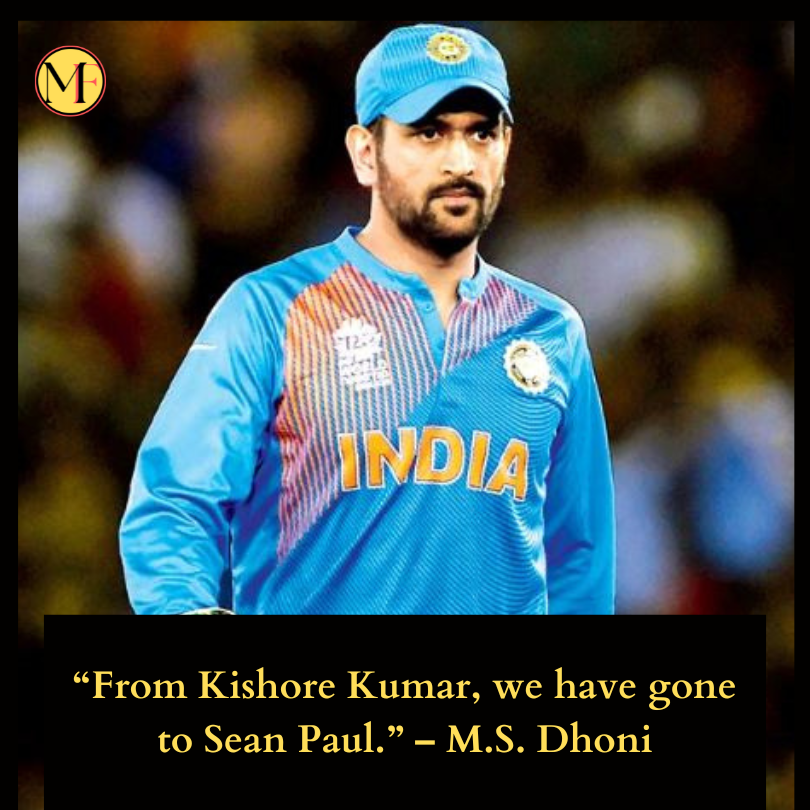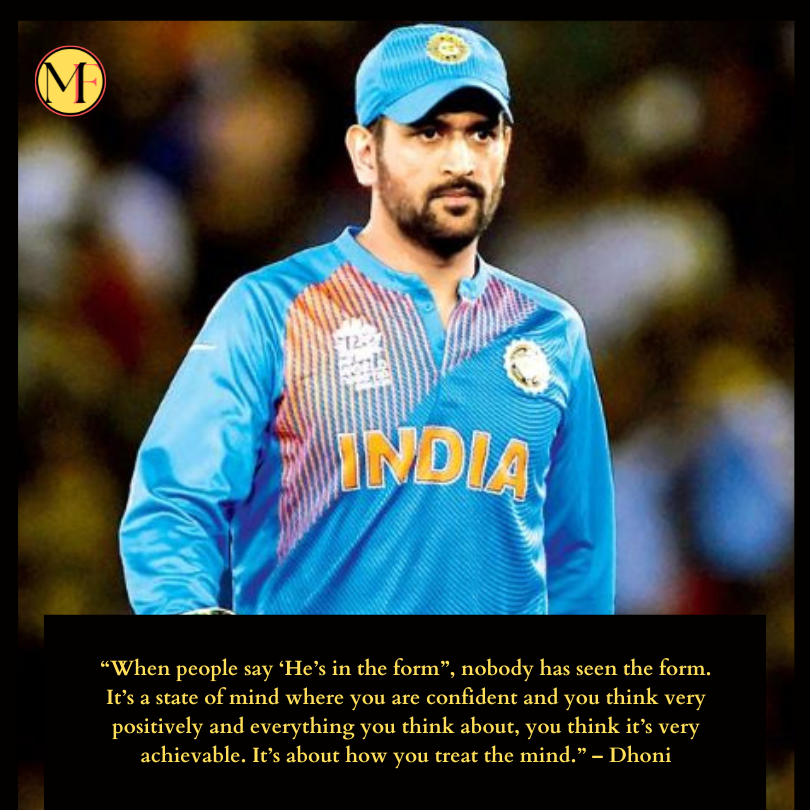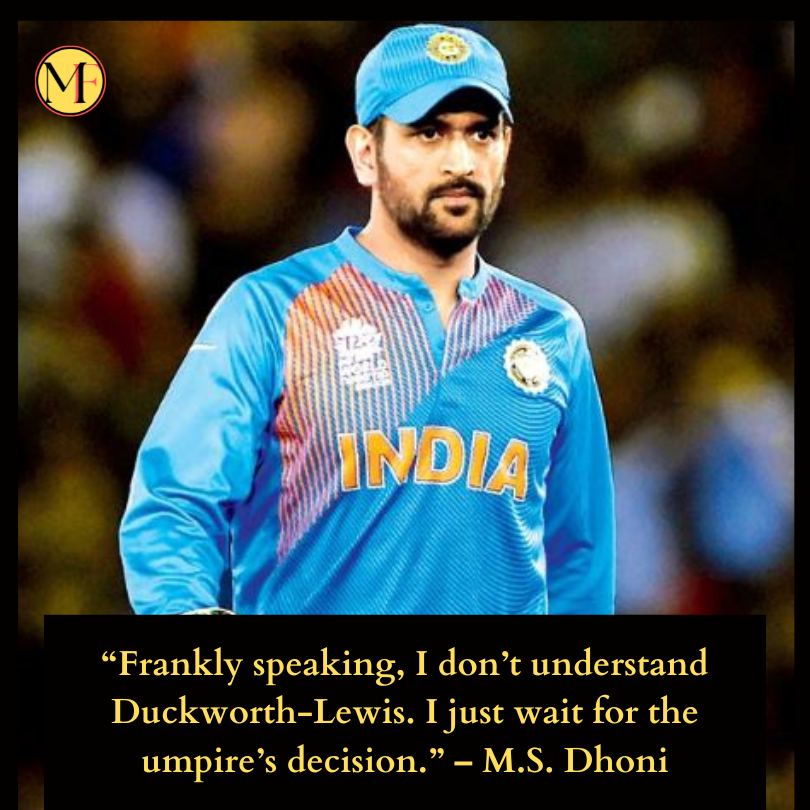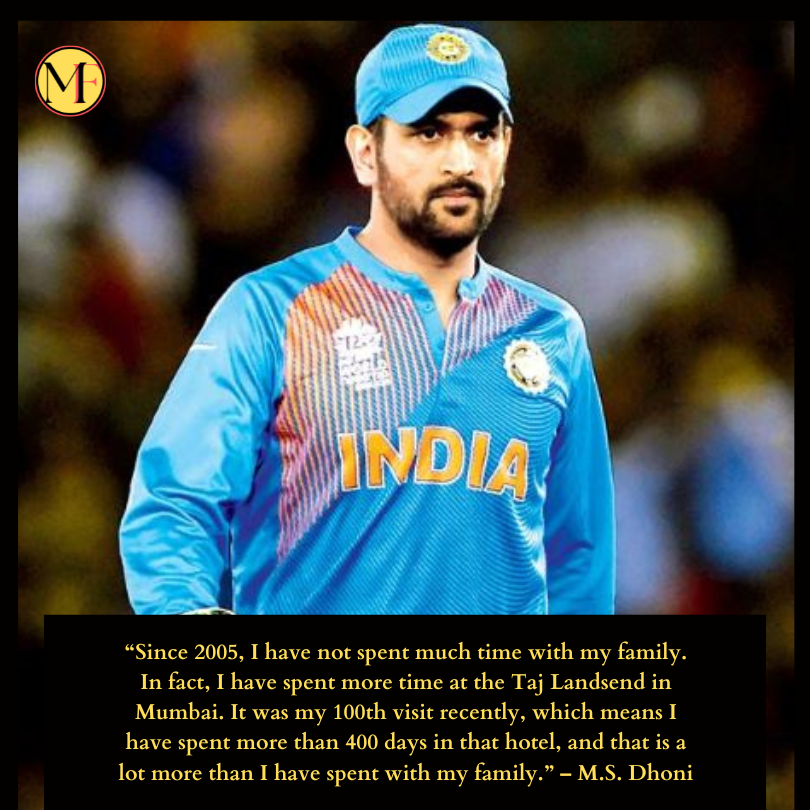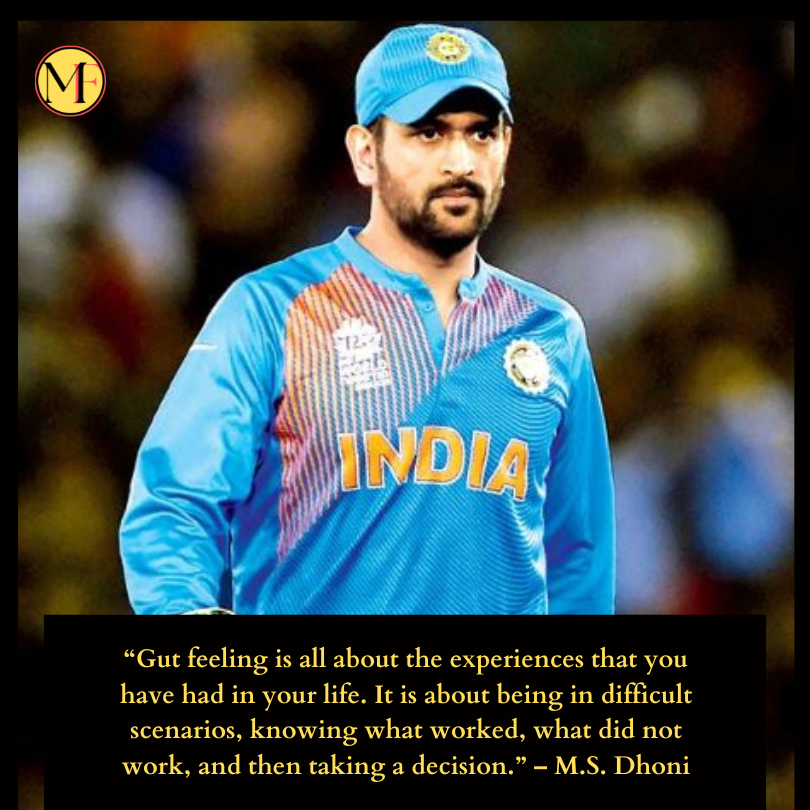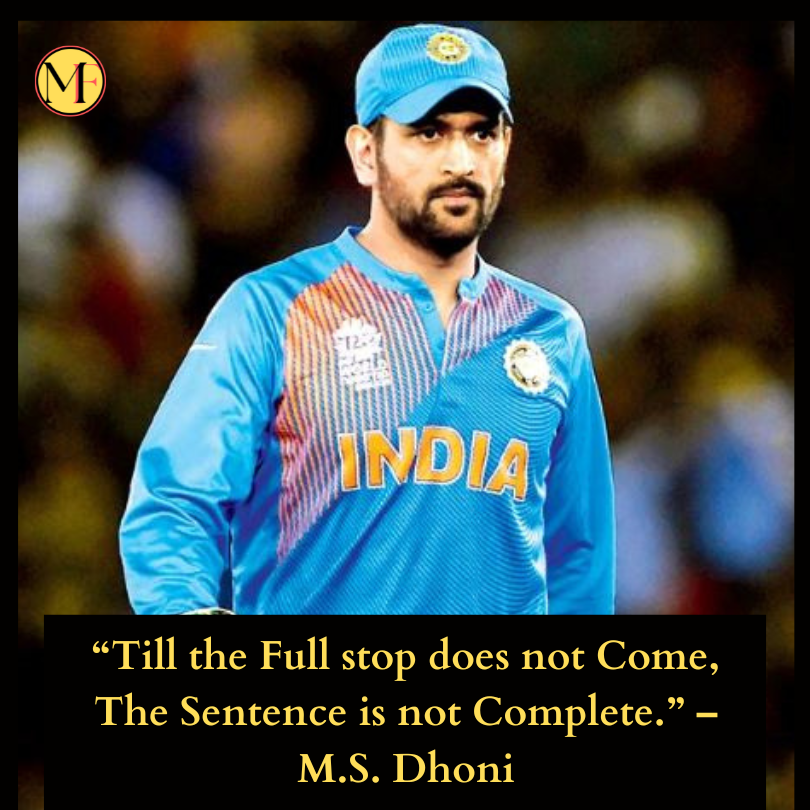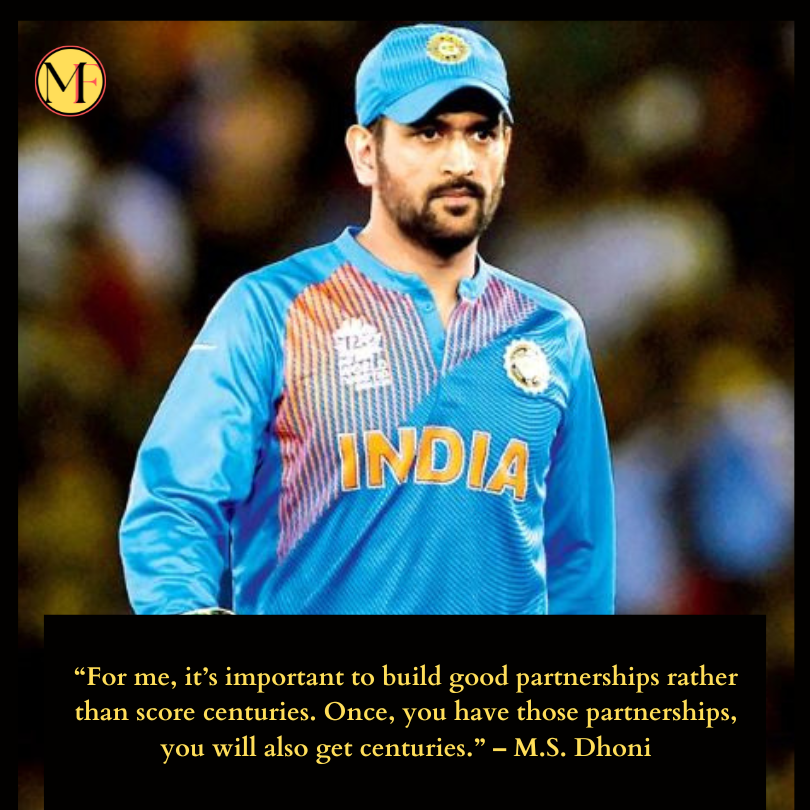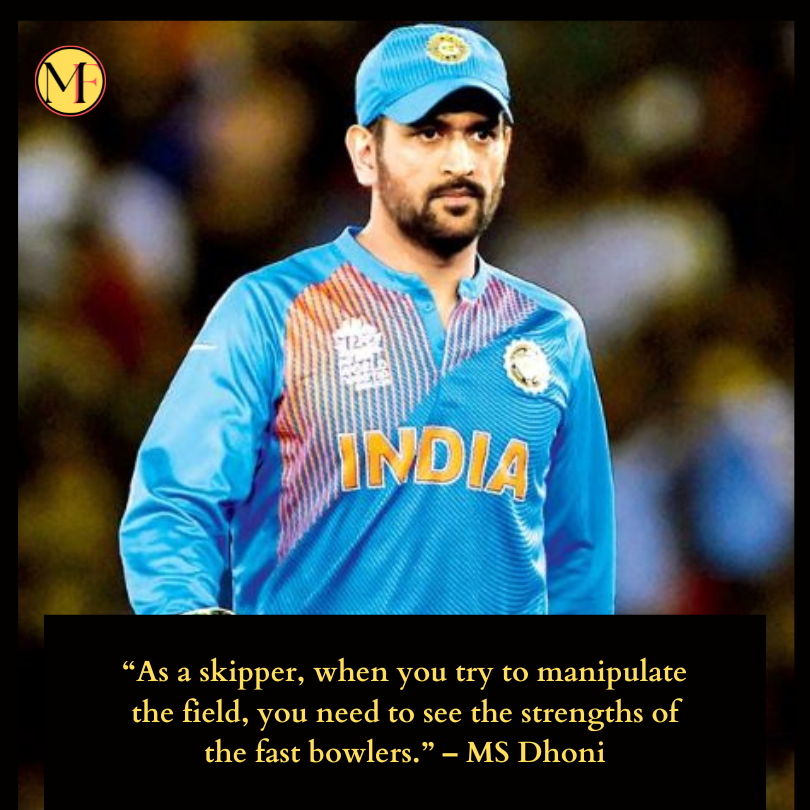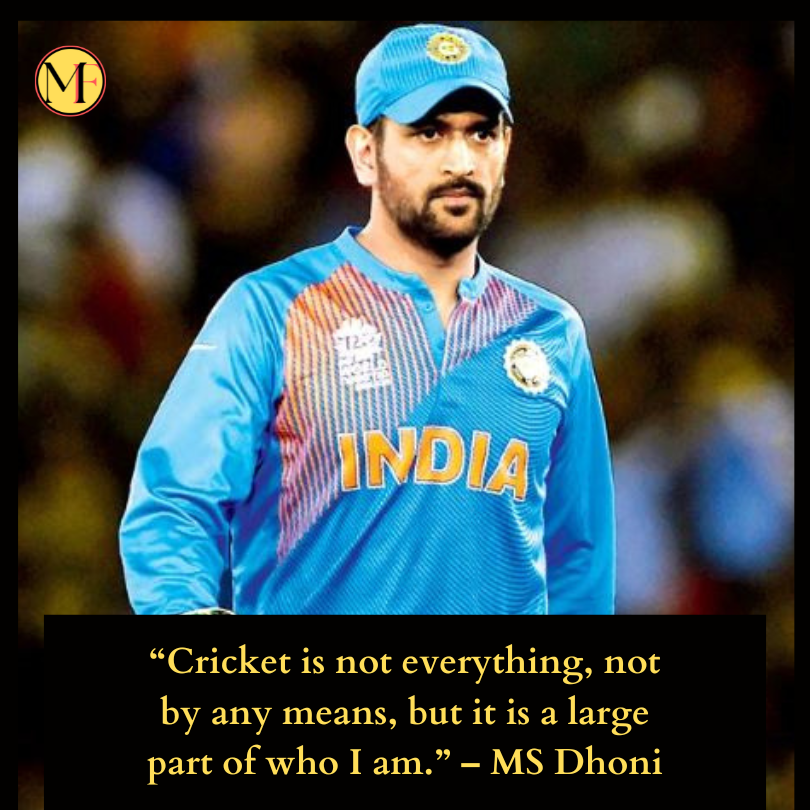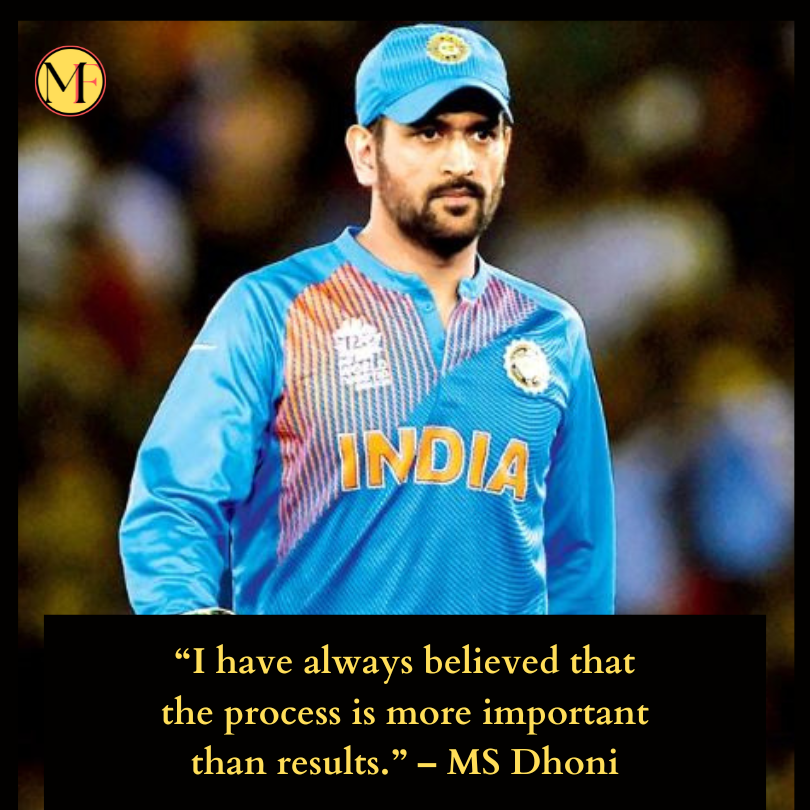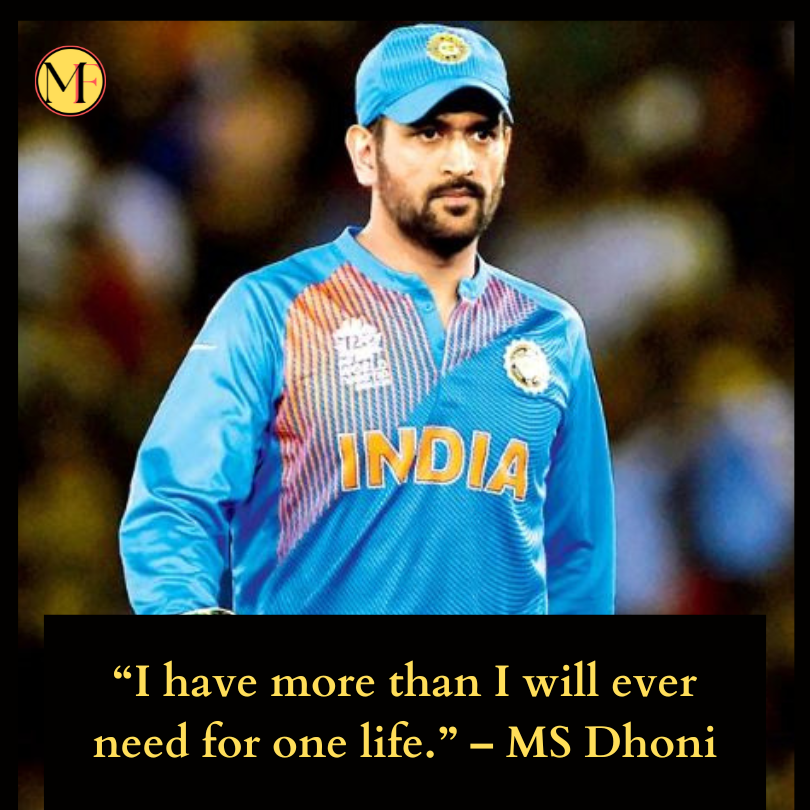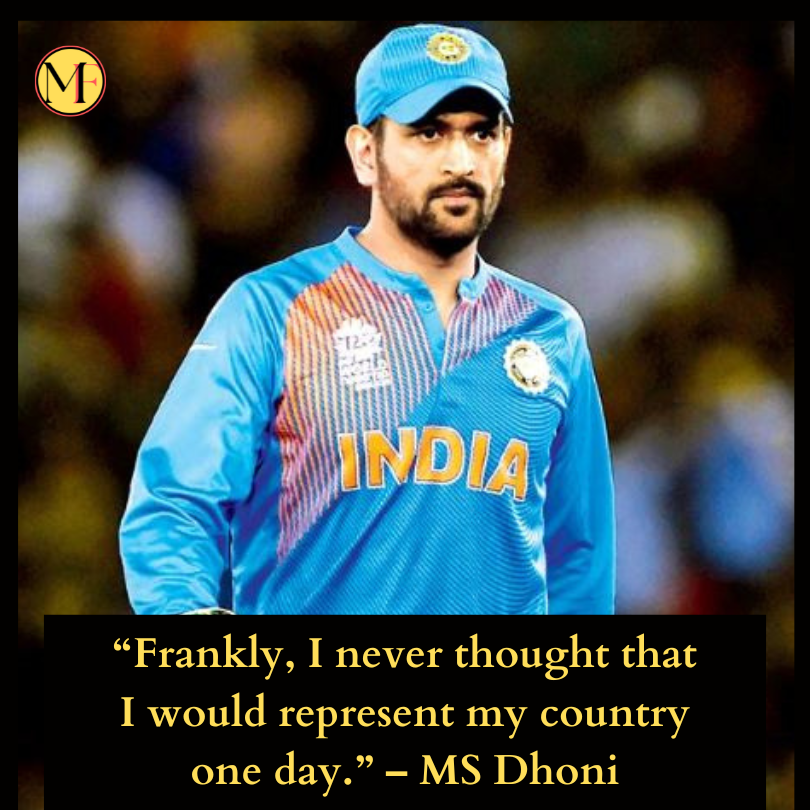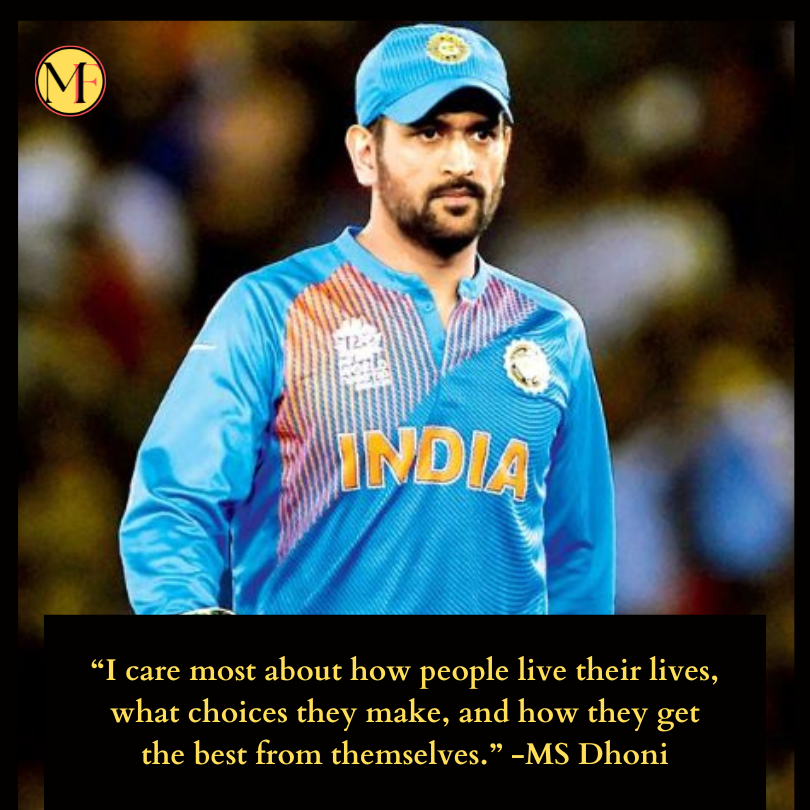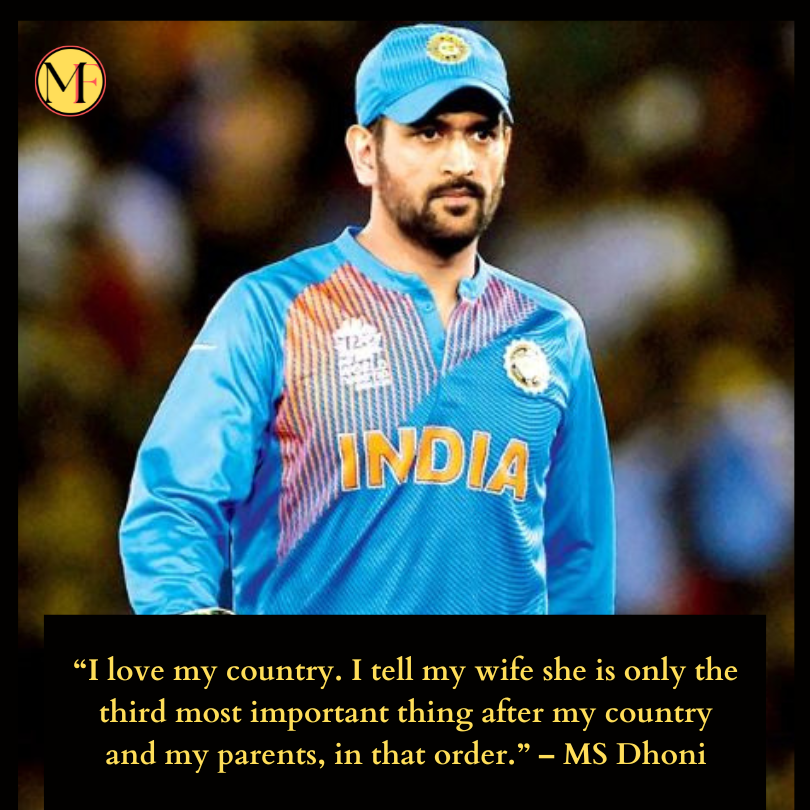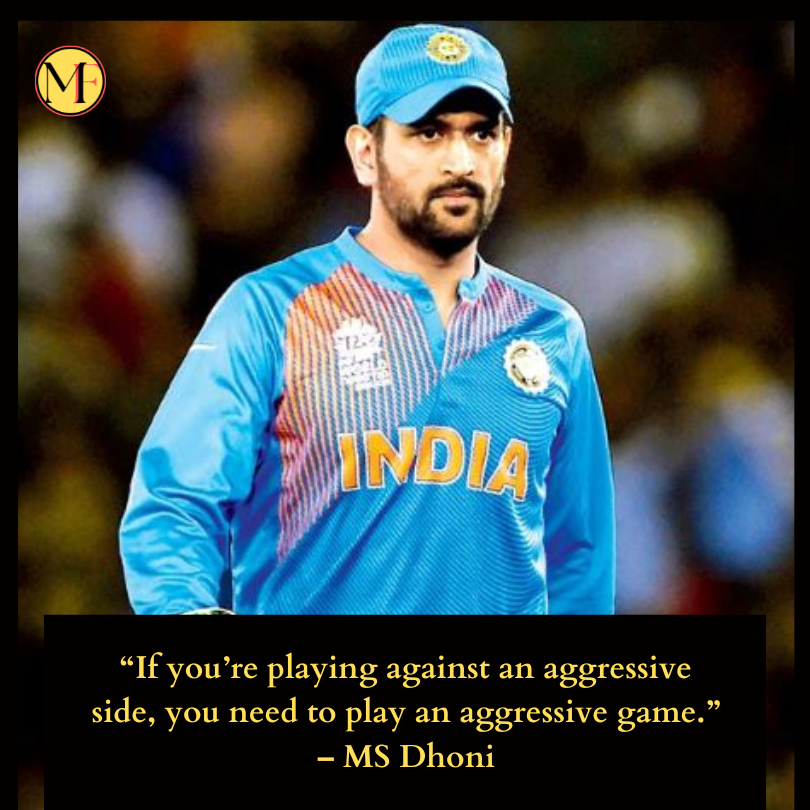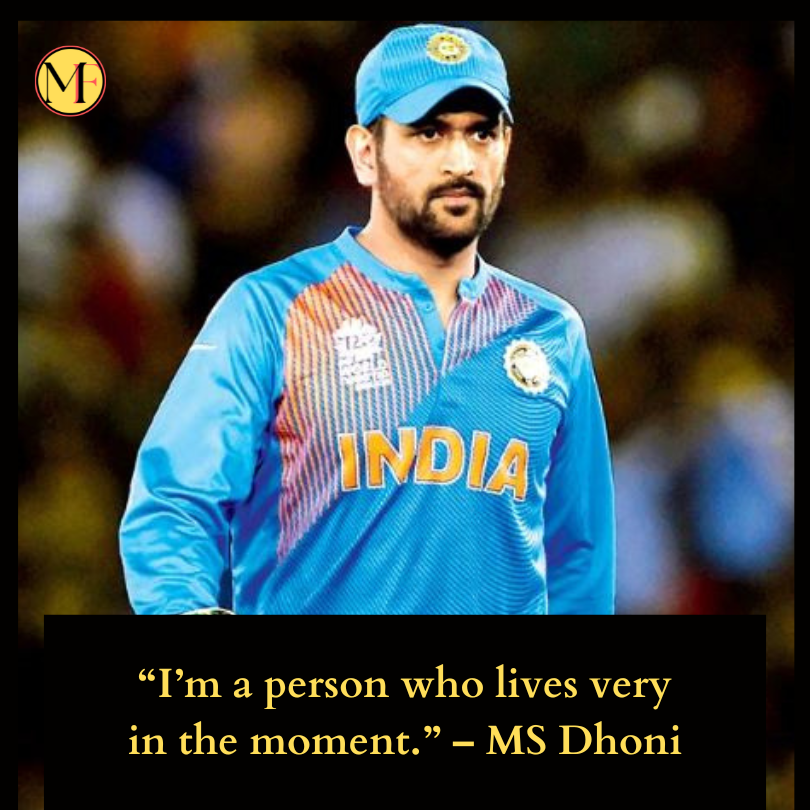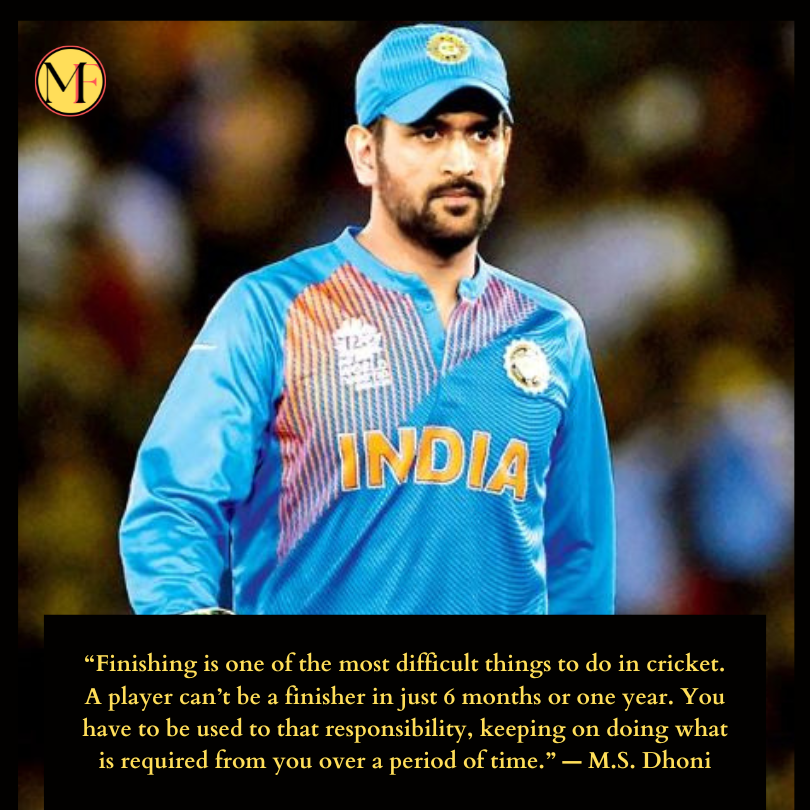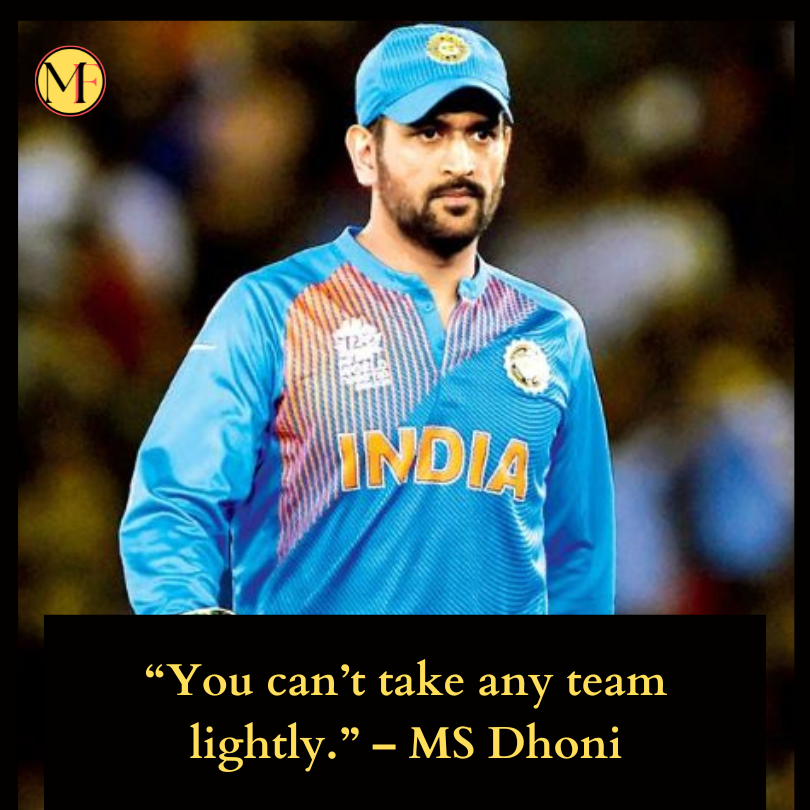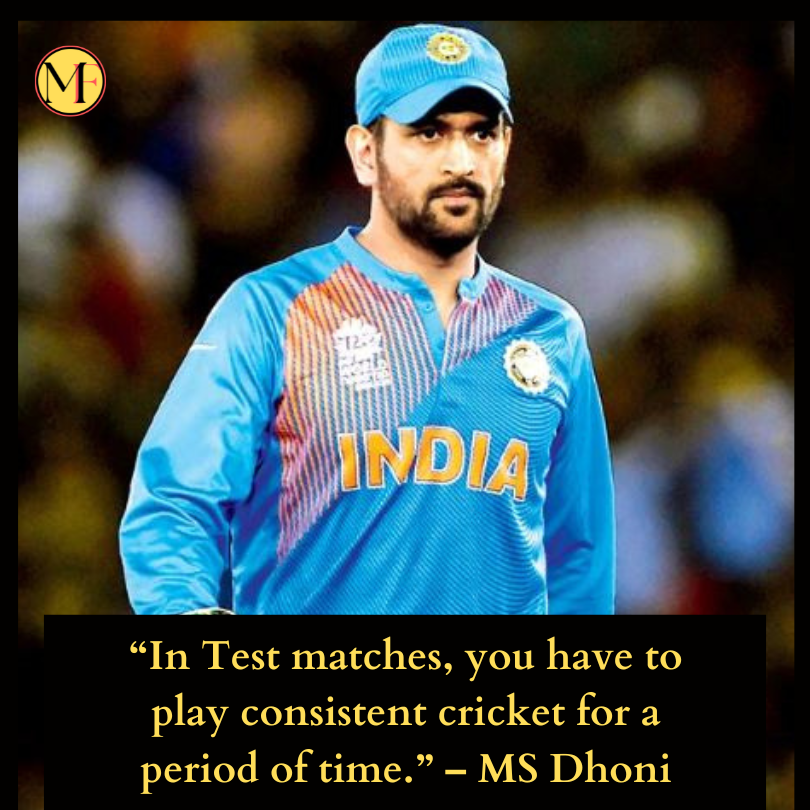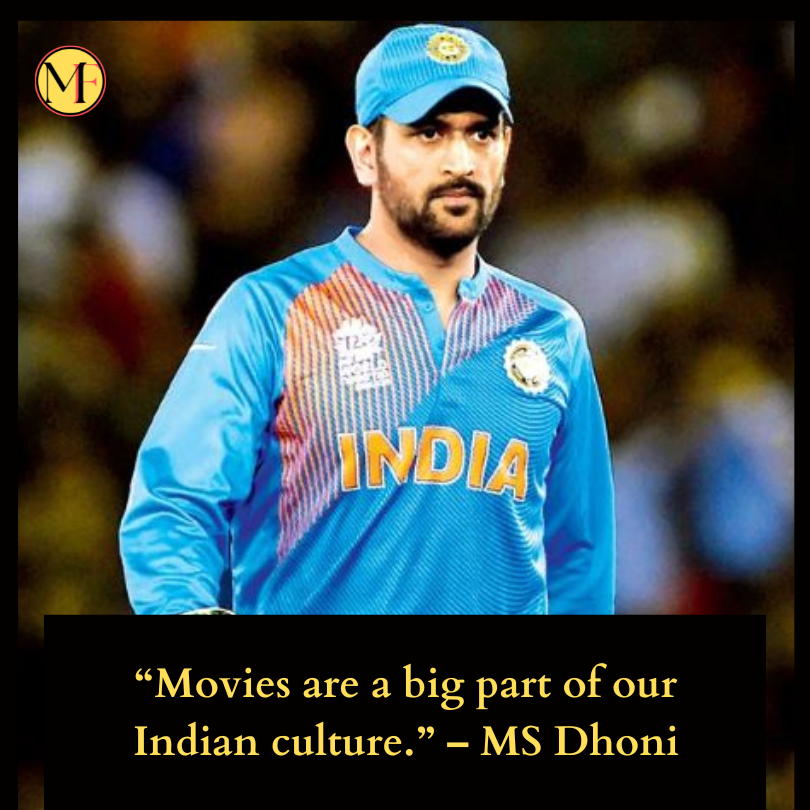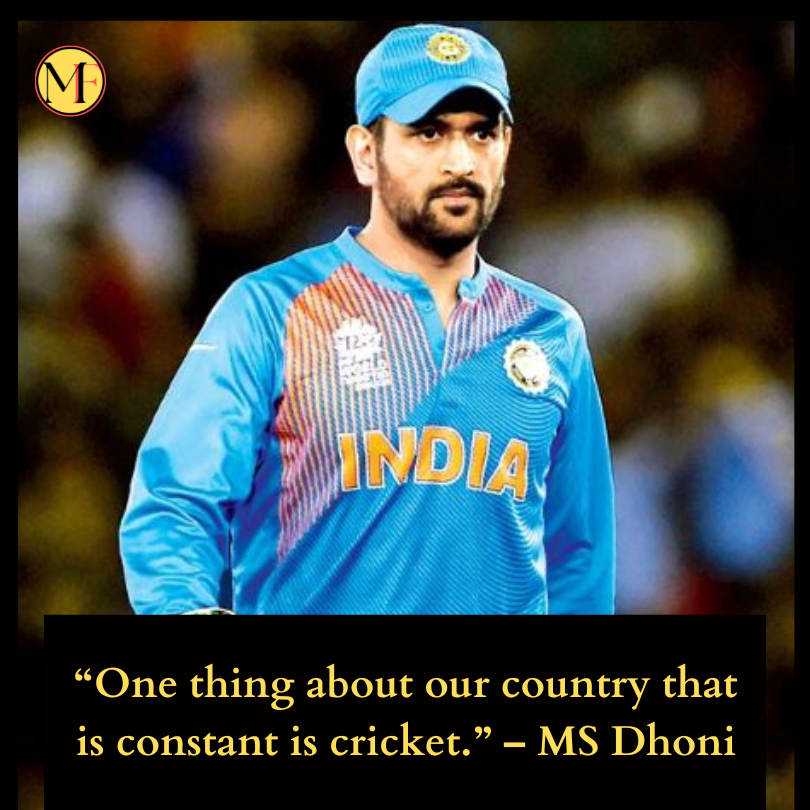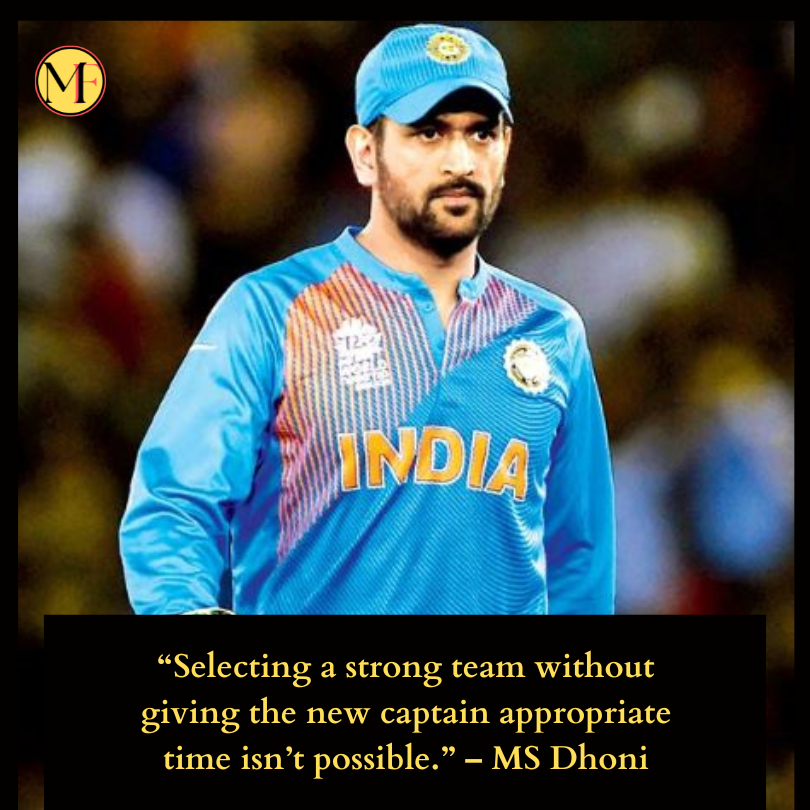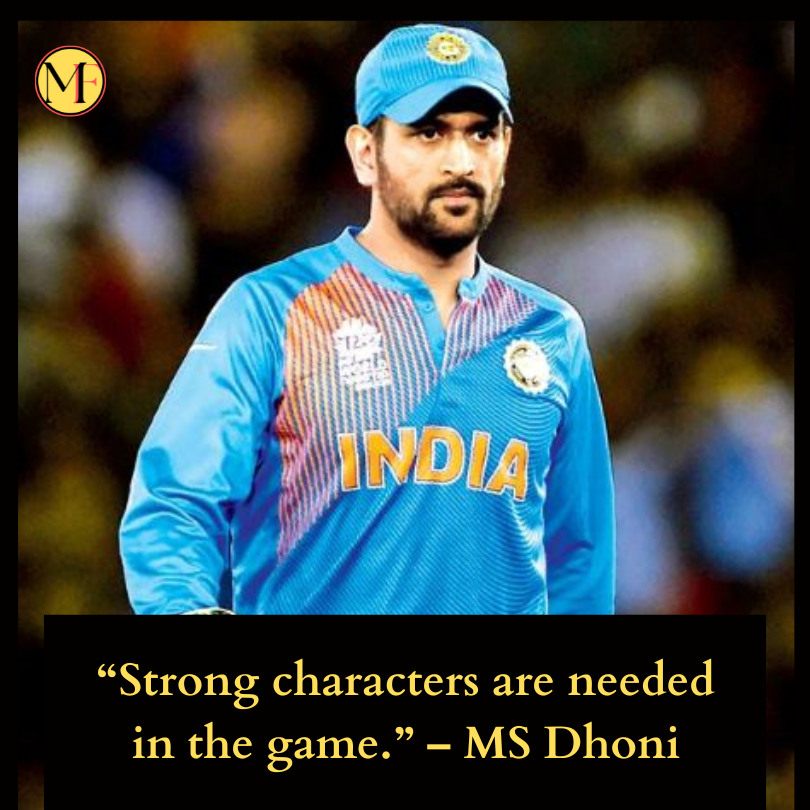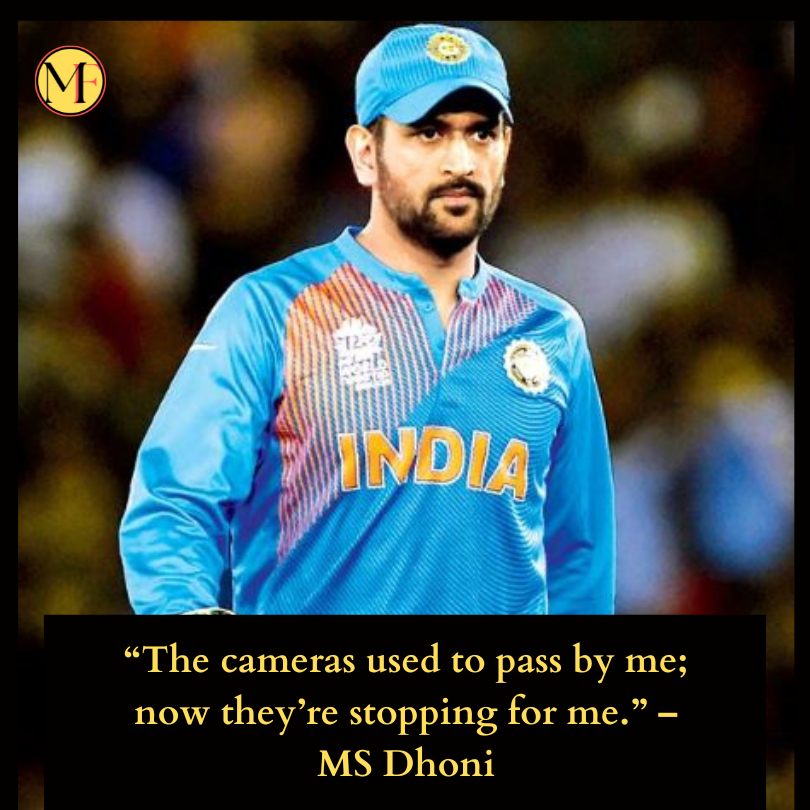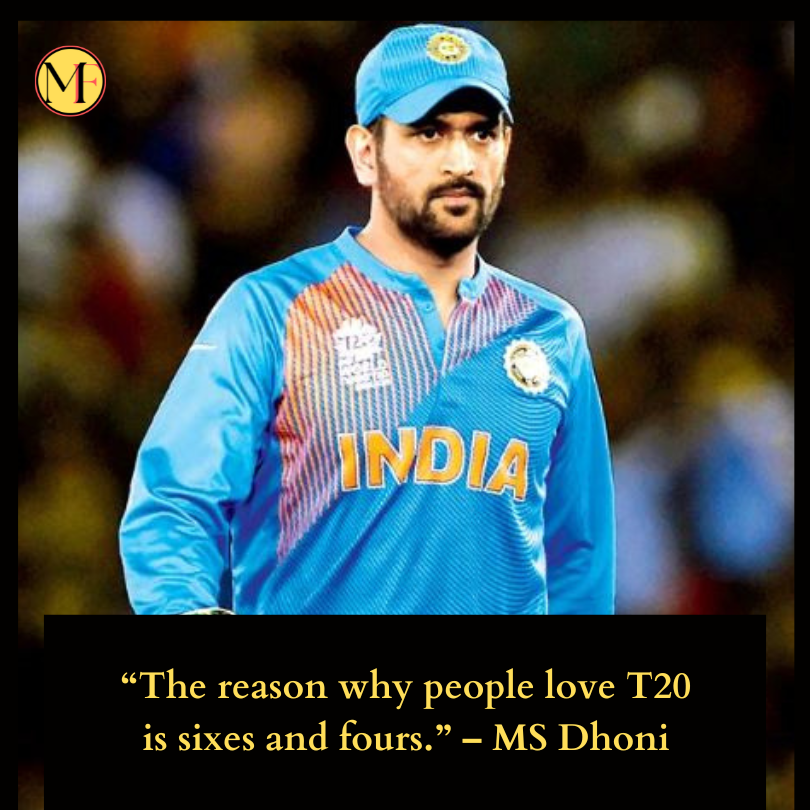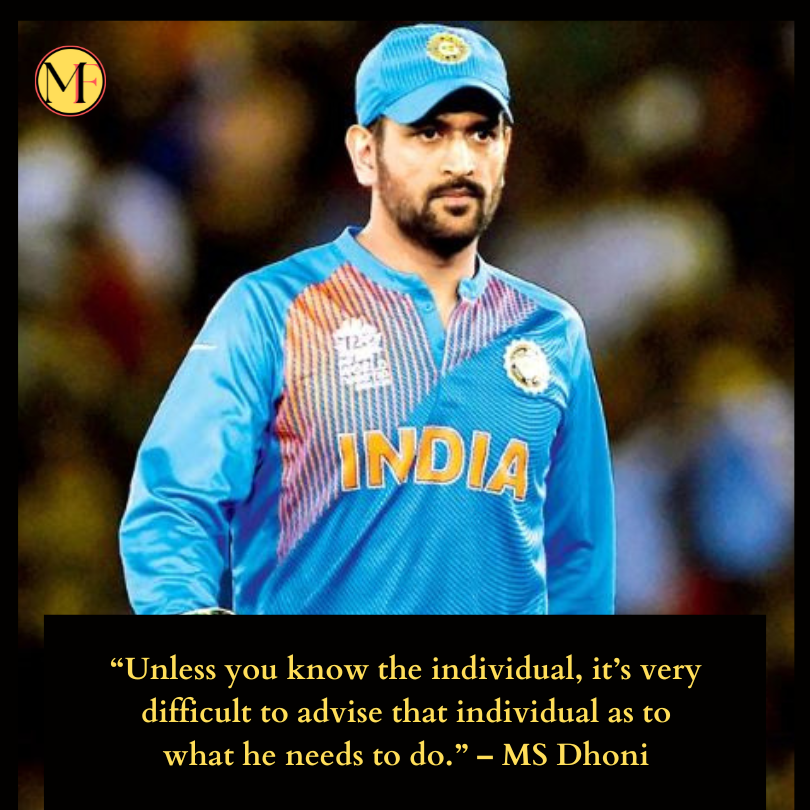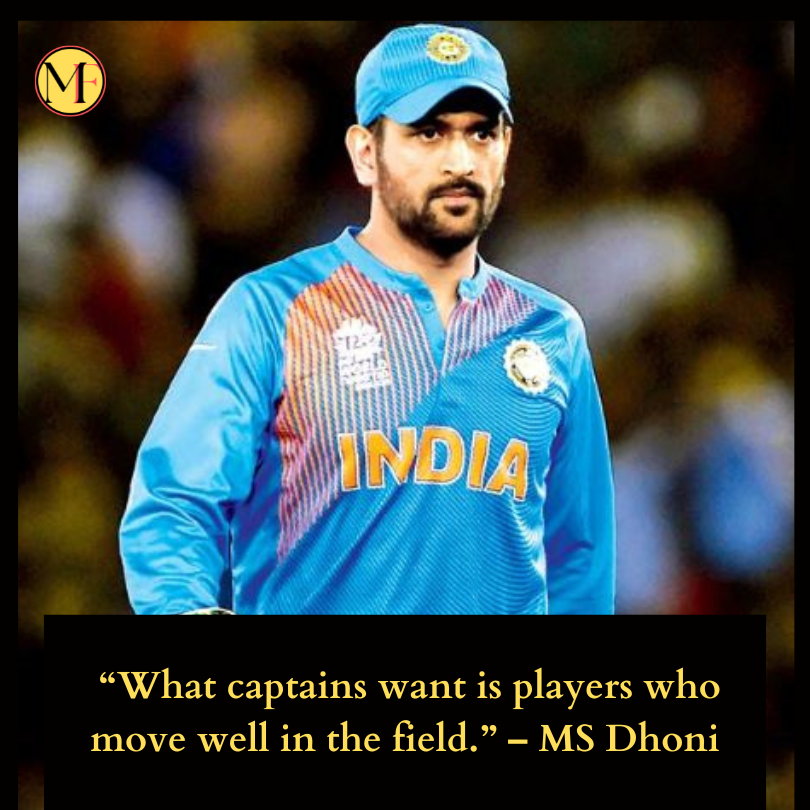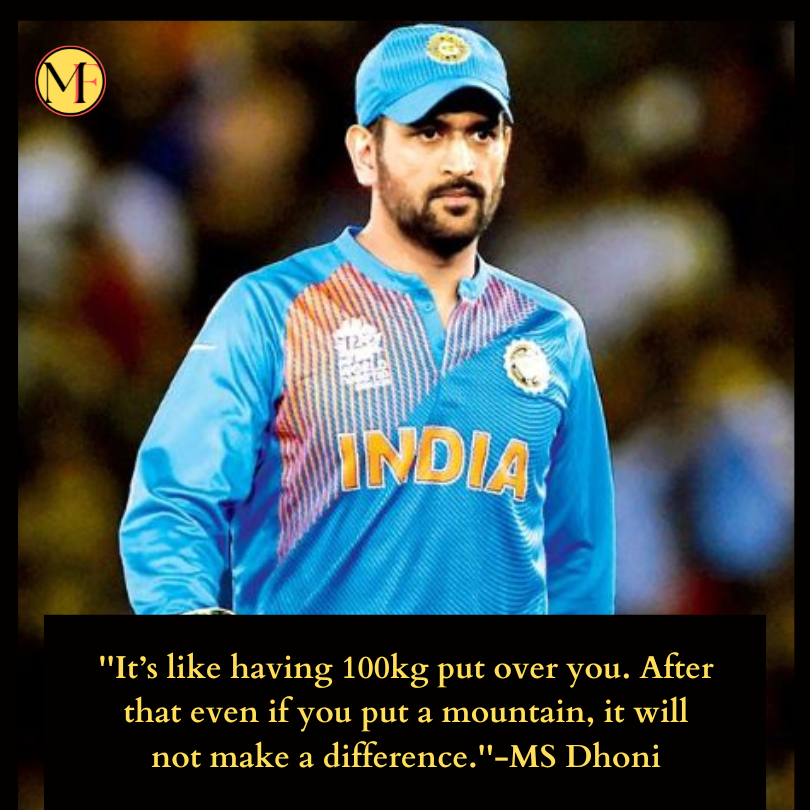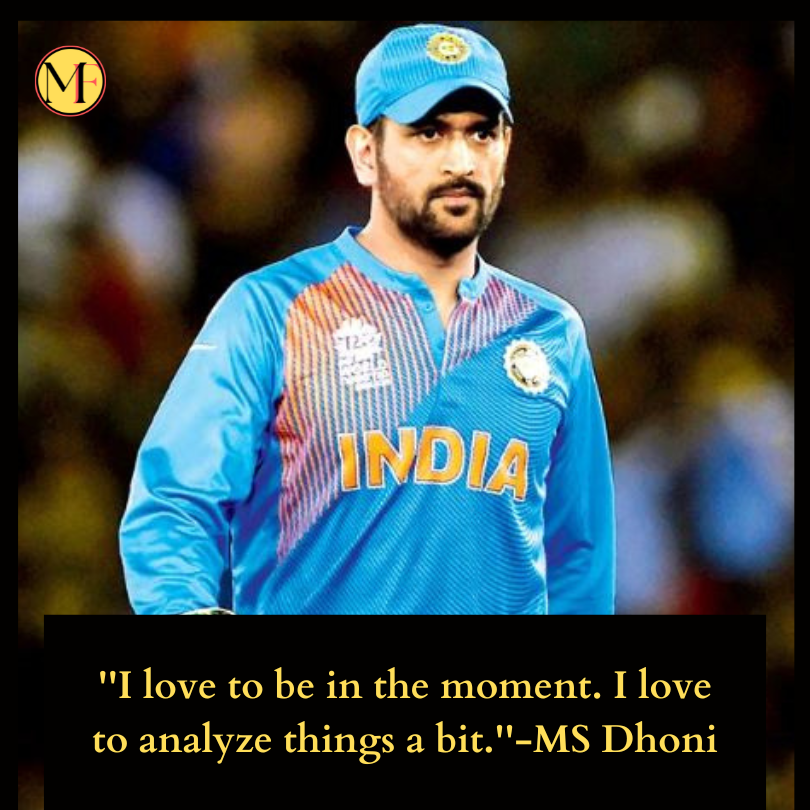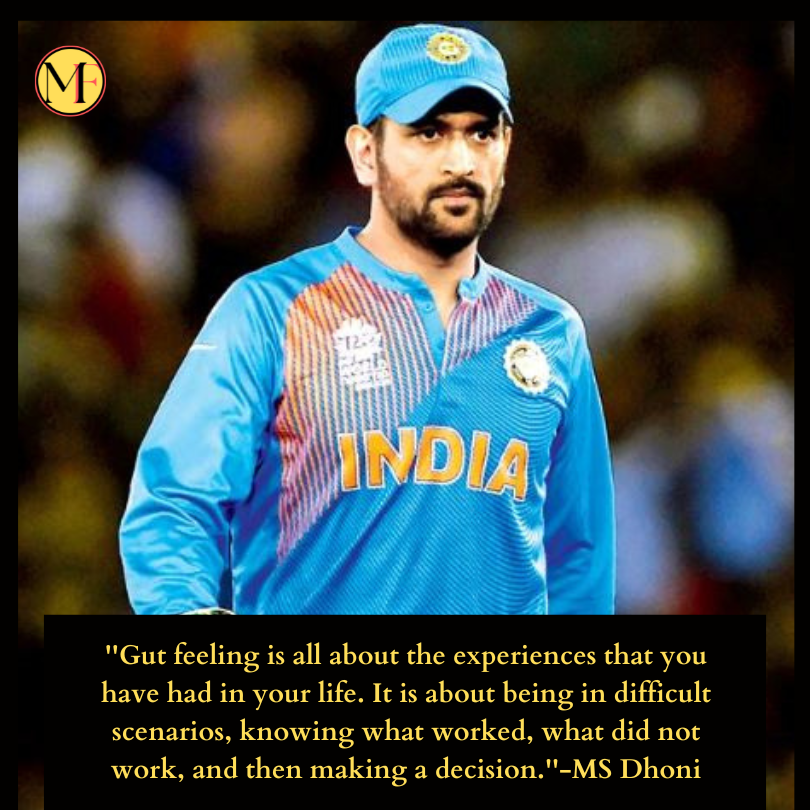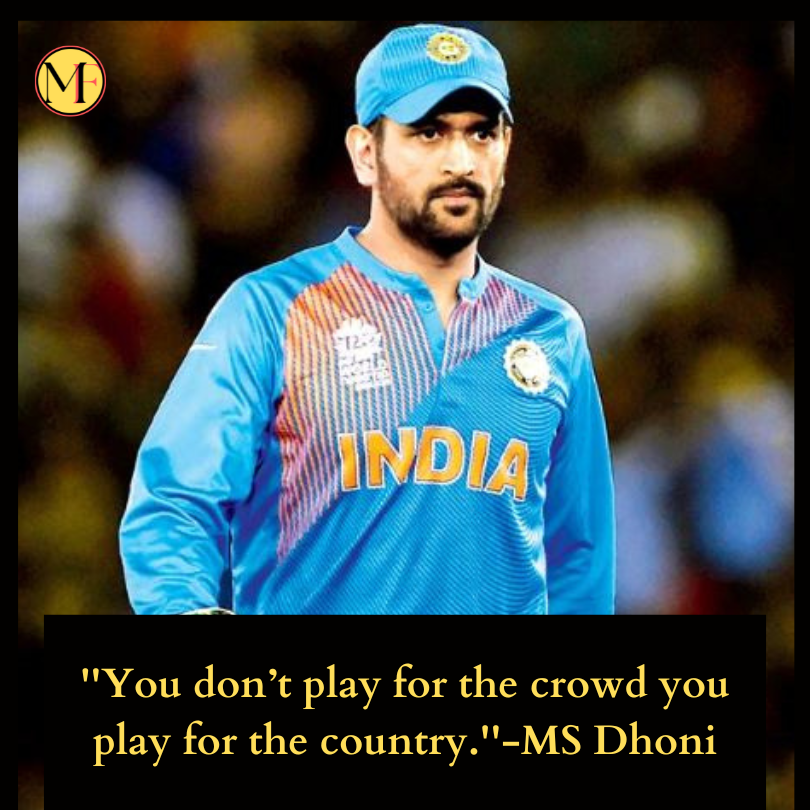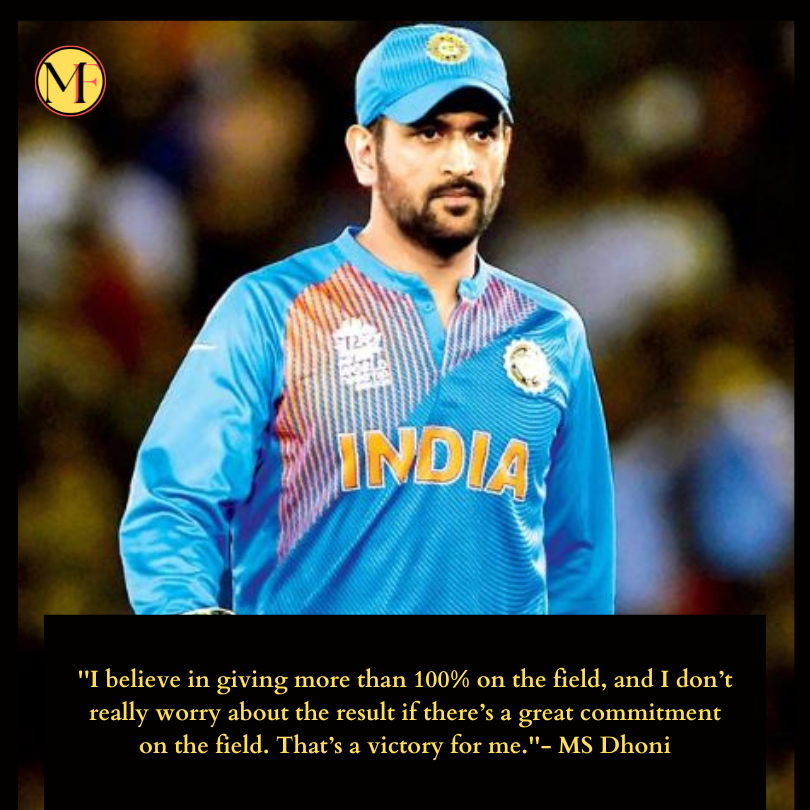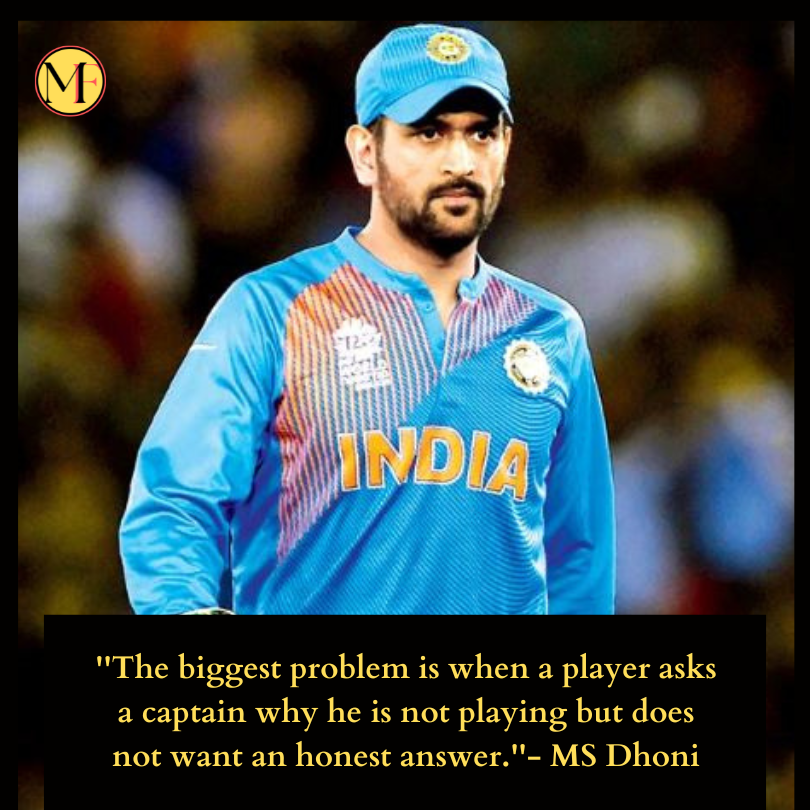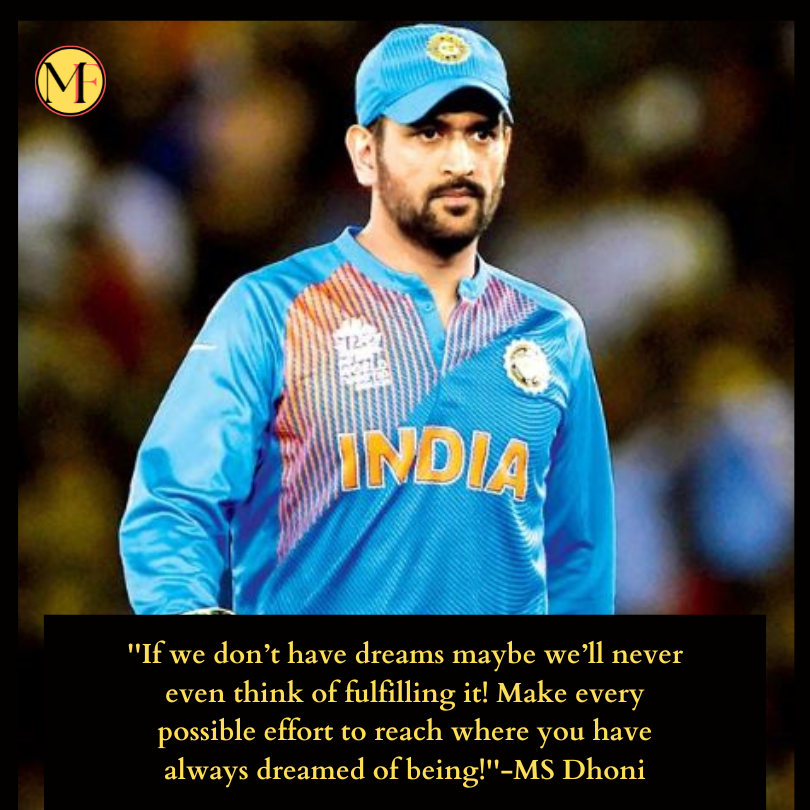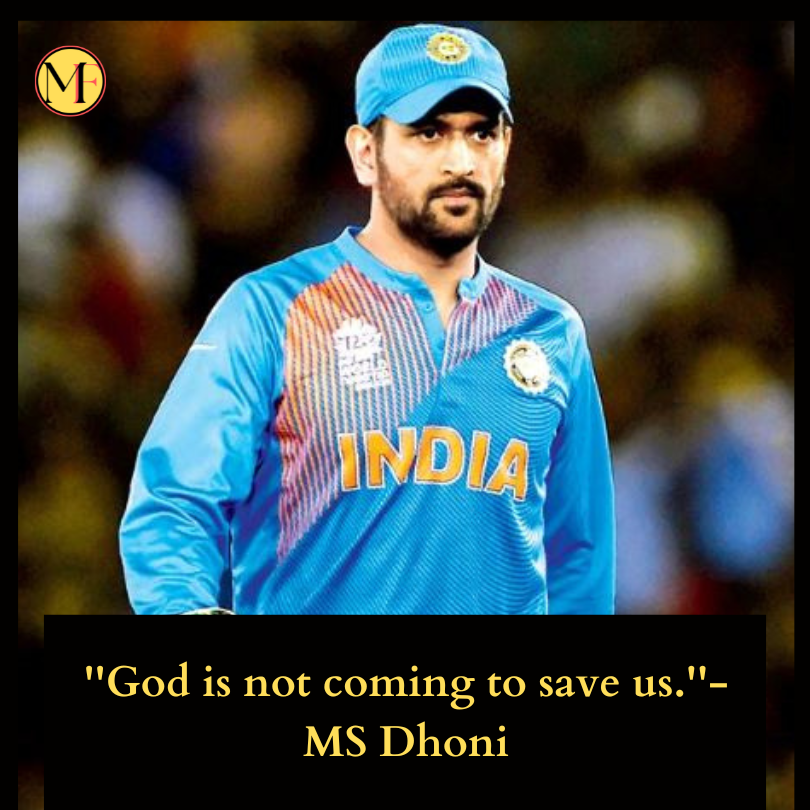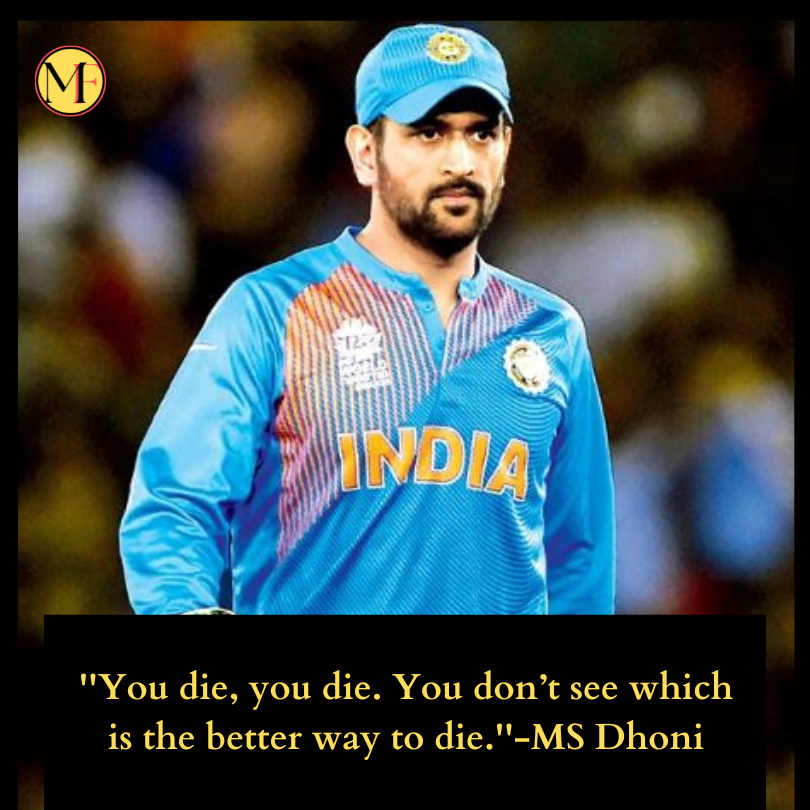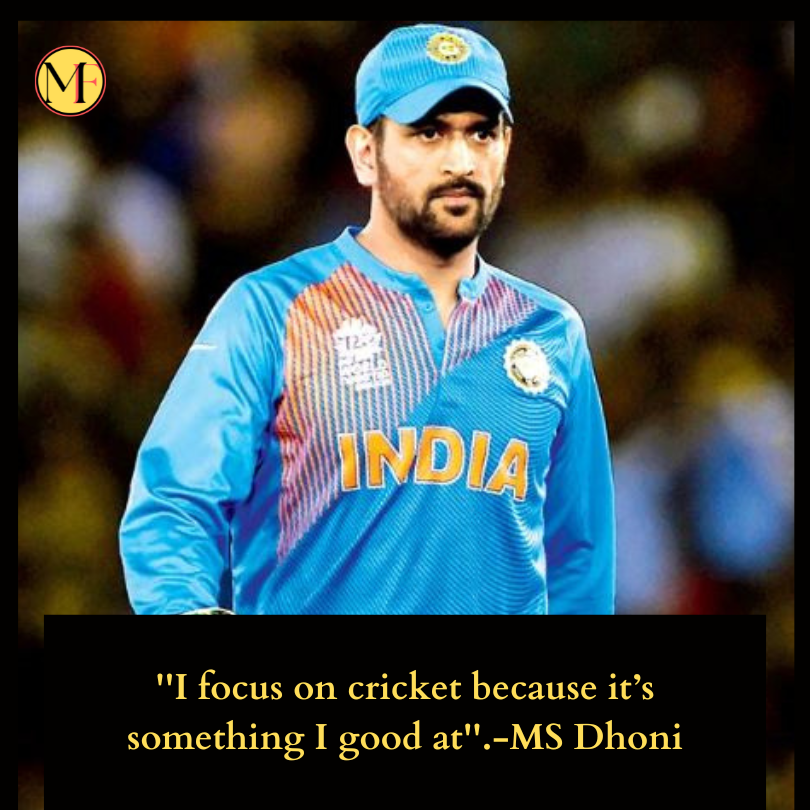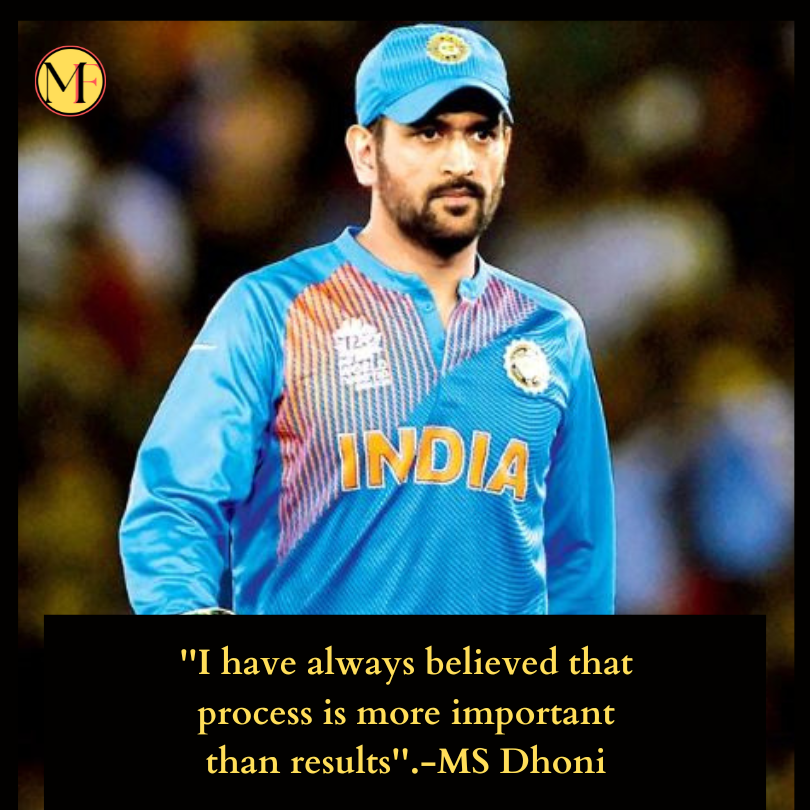Mahendra Singh Dhoni, affectionately known as “MSD” and “Captain Cool”, is one of the most iconic cricketers India has ever produced. From humble beginnings in the mining town of Ranchi, MS Dhoni rose rapidly as a wicketkeeper-batsman of exceptional ability and captaincy skill to lead India through its golden era of cricket.
Dhoni’s career is the stuff of legend – bursting onto the international stage out of nowhere to establish himself as one of India’s premier batsmen, before being thrust into the captaincy and molding a young team in his image – supremely fit, tactically shrewd, and equipped with the same preternatural calm and clarity as their leader. Over a trophy-laden career spanning 16 years, Dhoni accumulated accolades across all formats and led India to glory in the inaugural 2007 ICC World Twenty20 and the 2011 ICC Cricket World Cup on home soil.
Beyond statistics that bear testament to greatness, Dhoni inspired a devoted following among cricket fans with his unwavering composure and matter-of-fact demeanor in the face of immense pressure situations. For his ability to shepherd India through crisis situations by force of strategic leadership and stoic calm, he earned the epithets of “Captain Cool” and “Crisis Man”. The Dhoni legend now spans generations and his impact on Indian cricket has earned him recognition as one of the most influential sportspersons the country has produced.
Early Life and Cricketing Journey
Born on 7 July 1981 in Ranchi, Bihar (now Jharkhand), MS Dhoni’s early life was spent in modest surroundings amid the district’s coal mines and factories. Cricket was his passion from childhood and he honed his skills from an early age by playing alongside his friends in local tennis ball leagues and tournaments.
After completing high school, Dhoni focused on representing his employers – the South Eastern Railway – in local club tournaments as a hard-hitting wicketkeeper-batsman. His aggressive stroke play and consistency soon earned him a place in the Bihar Ranji Trophy squad during the 1999/2000 season. Though Bihar cricket was hardly a force then, Dhoni took the opportunity to highlight his talent on the national stage.
The 2003/04 season proved a breakthrough moment, as Dhoni was selected for East Zone to compete in the Deodhar Trophy ODI competition. He announced himself with a blistering 139-ball 102, catching the eyes of national selectors in attendance. This earned him a spot in India A squad for a tour of Zimbabwe and Kenya, where Dhoni further enhanced his reputation with a century.
Finally, Dhoni’s ticket to international recognition arrived in the 2004/05 season, as he was included in India A’s squad for the Challenger Trophy tournament. In an innings that previewed many soon-to-be-familiar trademark shots, Dhoni smashed a devastating 84-ball 140* against a strong bowling attack. His dynamic big hitting and robust wicketkeeping drew praise from captain Sourav Ganguly, setting the stage for the Ranchi sensation to make his international debut within months.
III. International Debut and Rise to Stardom
At 23, Dhoni received his call-up to the national ODI squad for a triangular tournament in Bangladesh in December 2004. In just his fifth match, he announced himself on the world stage by bludgeoning 148 off 123 balls against Pakistan. His bold stroke play and ability to manipulate bowling attacks marked him as a special talent.
Over the next two years, Dhoni gradually cemented his place in the ODI and T20 squads through performances underpinned by his trademark power, improvisation and composure. This included 123 against Pakistan in Ahmedabad and 183* against Sri Lanka in Jaipur – a brutal knock where he tore into the hapless bowling attack, setting a new record for highest individual ODI score by a wicket-keeper.
Through this formative period of Dhoni’s international rise from 2005-2007, India struggled in Tests under Rahul Dravid’s leadership. Recognizing Dhoni’s growing influence and tactical acumen, selectors made the momentous decision to appoint him captain across formats in September 2007 when Anil Kumble suffered an injury. In his very first match – the 2007 ICC World Twenty20 – Dhoni led a young Indian team to a thrilling five-run victory over Pakistan in the final. It was a fitting beginning to an era of leadership that changed the face of Indian cricket.
Captaincy and Record-Breaking Achievements
Dhoni’s promotion to captain proved an inspired choice as India entered a golden age between 2007-2013. With his calm authority, tactical boldness and firm handling of senior players, he molded the team in his image – fit, aggressive and tactically flexible. Dhoni promoted young talents, managed senior egos deftly and devised strategies suited to different formats.
Key highlights included leading India to:
- The #1 Test ranking for 18 months between December 2009-August 2011.
- ICC Cricket World Cup triumph on home soil in 2011 – ending a 28-year wait. His masterful 91* in the final typified his ability to guide India through crisis moments.
- ICC Champions Trophy win in 2013, becoming the first captain to win all three major ICC limited-overs titles.
Beyond team feats, Dhoni broke record after record in his trademark nonchalant fashion. In ODIs and T20Is, Dhoni demolished attacks with trademark power and improvisation to average over 50, notching up 10 ODI and 2 T20I centuries. For all the aggression, it was his composure and levelheadedness that set him apart as a leader.
Dhoni’s captaincy record places him arguably as India’s greatest limited overs leader of all time. Across formats, he led India to 27 Test wins, 110 ODI victories and 42 T20I wins. Few could handle the pressures of captaincy as assuredly as ‘Captain Cool’.
Personal Achievements and Legacy
While Dhoni is renowned as India’s most successful limited overs captain, his individual records and versatility also cement him as one of cricket’s foremost wicketkeeper-batsmen. In Tests, he scored 4,876 runs including 6 centuries, showing his pedigree in the longer format too.
But it was in the high-octane arena of ODI and T20 cricket that Dhoni carved his greatest feats. His 10,773 ODI runs came at a remarkable average of 50.57 and strike rate of 87.56 – exemplary numbers for a finisher batting lower down the order. Showcasing his consistency, Dhoni holds the records for highest career average among wicket-keepers and highest career strike rate among batsmen with over 5,000 ODI runs.
In T20Is, Dhoni’s 1617 runs at a strike rate of 126.13 and 54 dismissals again place him among the format’s elite. He could change tempo effortlessly from accumulator to accelerator – a flexibility India came to depend upon. Among overall T20 records, he ranks fifth all-time in dismissals by a wicketkeeper across domestic and franchise leagues.
From a fan’s perspective, Dhoni’s legacy centers on his ability to retain concentration even under extreme pressure and yet make batting look almost casual with his power and innovation. The 2011 World Cup final embodied this essence, as Dhoni sealed glory with a iconic six despite nursing an injured shoulder.
Beyond stats and trophies, Dhoni’s real legacy lies in the way he gave hope to millions of Indian fans that their team could upstage the world’s best teams on the biggest stages through courage and composure. The ‘Captain Cool’ moniker stems from this very trait that came to inspire generations.
Beyond Cricket: Philanthropy and Personal Life
Beyond his excellence on the cricketing field, Dhoni has channeled his profile and earnings towards philanthropy and social causes. In 2007, he founded the MS Dhoni Charitable Foundation which funds educational programs and provides infrastructure support across rural India. The foundation has disbursed over INR 45 crores supporting over 30,000 underprivileged children thus far.
Dhoni also co-owns the hugely successful Hockey India League franchise Ranchi Rays, promoting the growth of other sports. Among numerous endorsements with high-profile brands, he retains a deep connection with the armed forces having been conferred an honorary Lt Colonel rank of the Territorial Army in 2011.
Away from strobe lights, Dhoni maintains a low profile, preferring to spend time with family in Ranchi away from constant media glare. He married Sakshi Rawat, a Kolkata native, in 2010. The couple were blessed with a daughter named Ziva in 2015. By all accounts, Dhoni remains an intensely private person devoted to his family and close friends.
While occasionally turning up as captain of his IPL franchise Chennai Super Kings, Dhoni now largely stays away from major public events after retiring from international cricket in 2020 as one of the sport’s true legends. He leaves behind a legacy of unprecedented captaincy success alongwith a batting record matched by few peers in composure and consistency.
VII. Conclusion: A Legend’s Enduring Impact
MS Dhoni’s remarkable journey reflects the quintessential underdog story – of a small-town boy scaling the heights of international stardom and carving his name among cricketing immortals through innate talent, strategic brilliance and grace under extreme pressure.
As skipper, Dhoni revolutionized the way India played its cricket by marrying bold leadership, shrewd tactics and a calm assurance in his team to become the country’s most decorated captain ever in limited overs cricket. Beyond the record-shattering stats and trophies, his real legacy lies in the hope he brought to millions of Indian fans that their team could achieve sporting excellence and inspire future generations.
Dhoni leaves behind mammoth shoes to fill for future captains tasked with the challenge of replicating his success. As wicketkeeper-batsman, he reached unprecedented peaks across formats, combining sharp technique with brutal power, earning him cult status in Indian cricket lore. At a time when limited overs cricket gained global prominence, Dhoni became the face of a resurgent nation on the march.
Where India’s cricket future goes, Dhoni’s shadow will forever loom large. Few sportspersons can attest to such an immense and passionate fan following that borders on devotion. From Ranchi to Mumbai to Chennai, ‘Mahi’ captured imaginations with his scientific match awareness and nerveless finishing instinct under extreme pressure while retaining a human touch that resonated emotionally and inspired widespread love from fans. In the annals of Indian cricket where sobriquets echo legends, there will perhaps be none cooler than its beloved ‘Captain Cool’.
“If you don’t really have a dream, you can’t really push yourself; you don’t really know what the target is.” – Mahendra Singh Dhoni quotes on dreams
